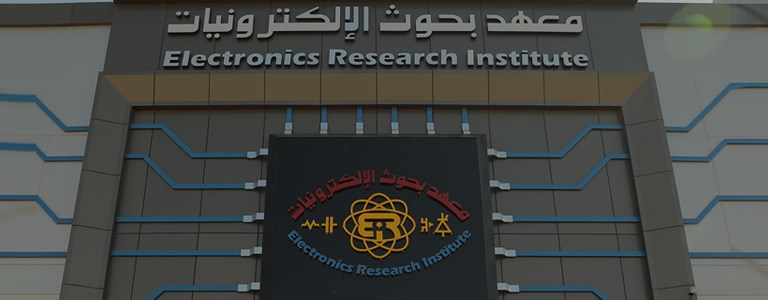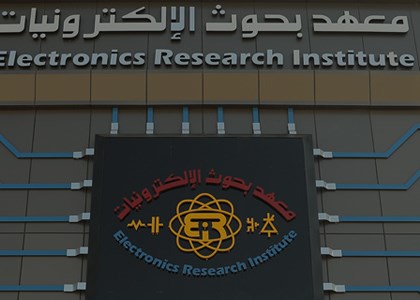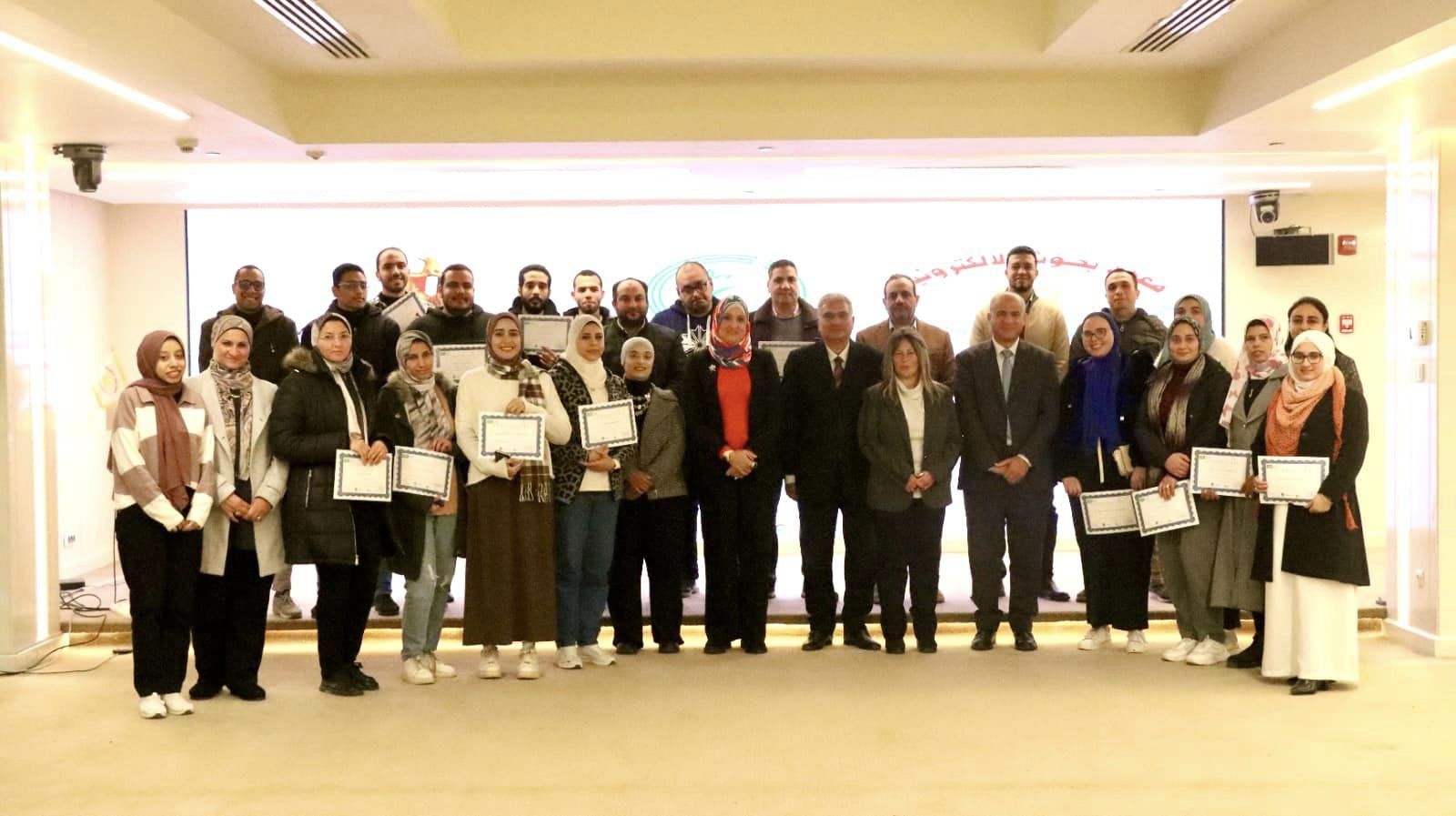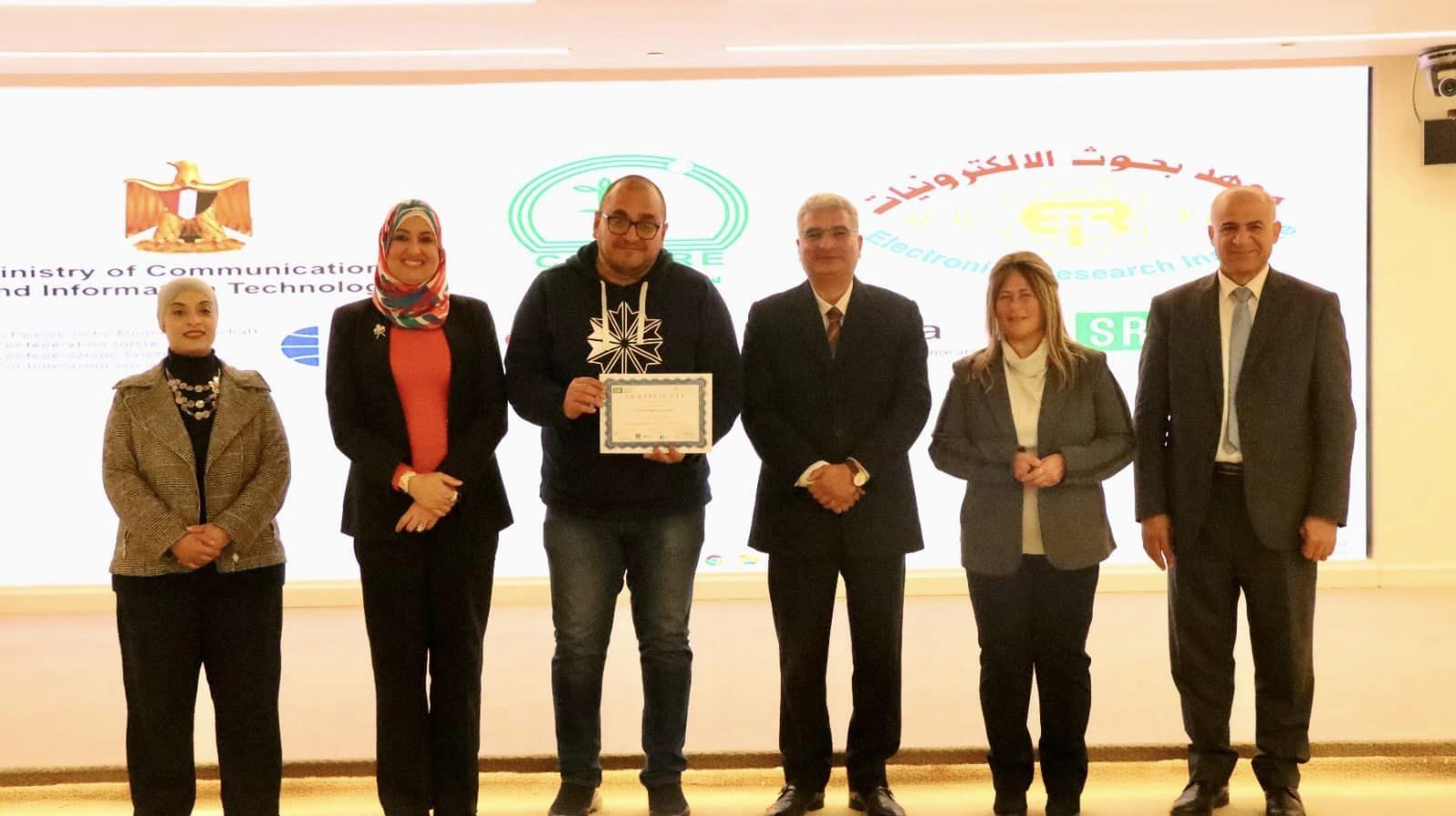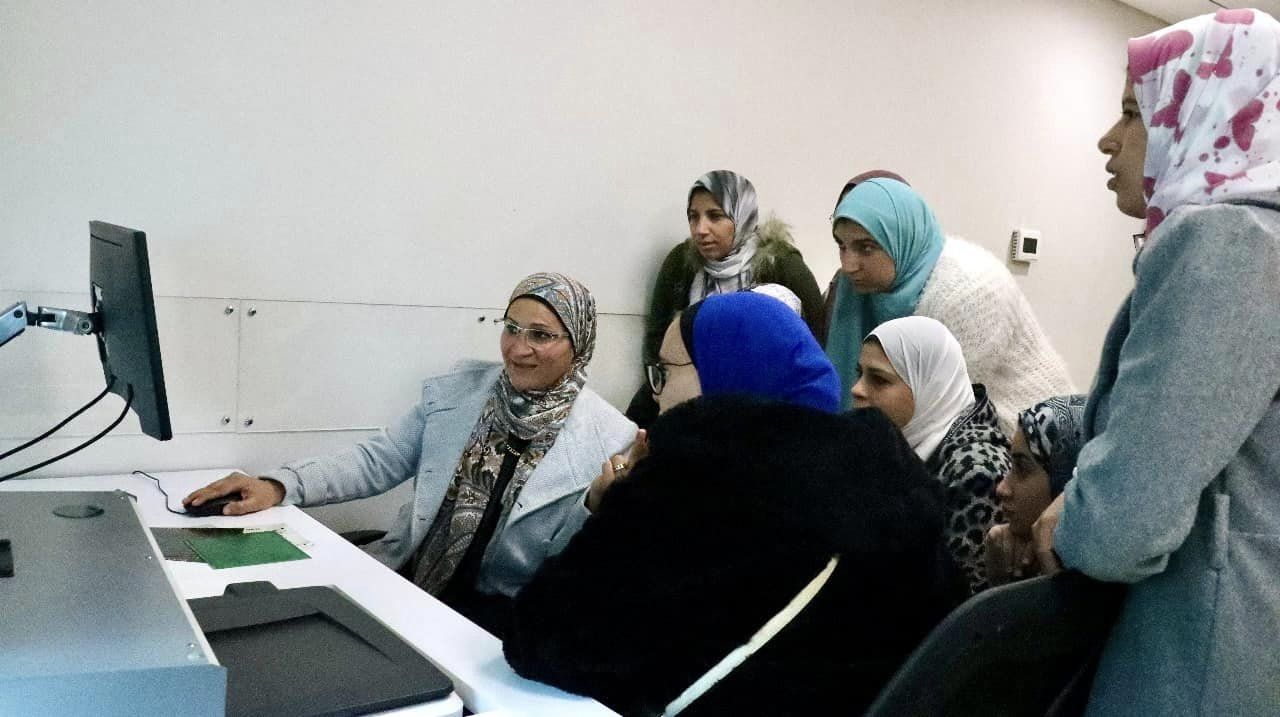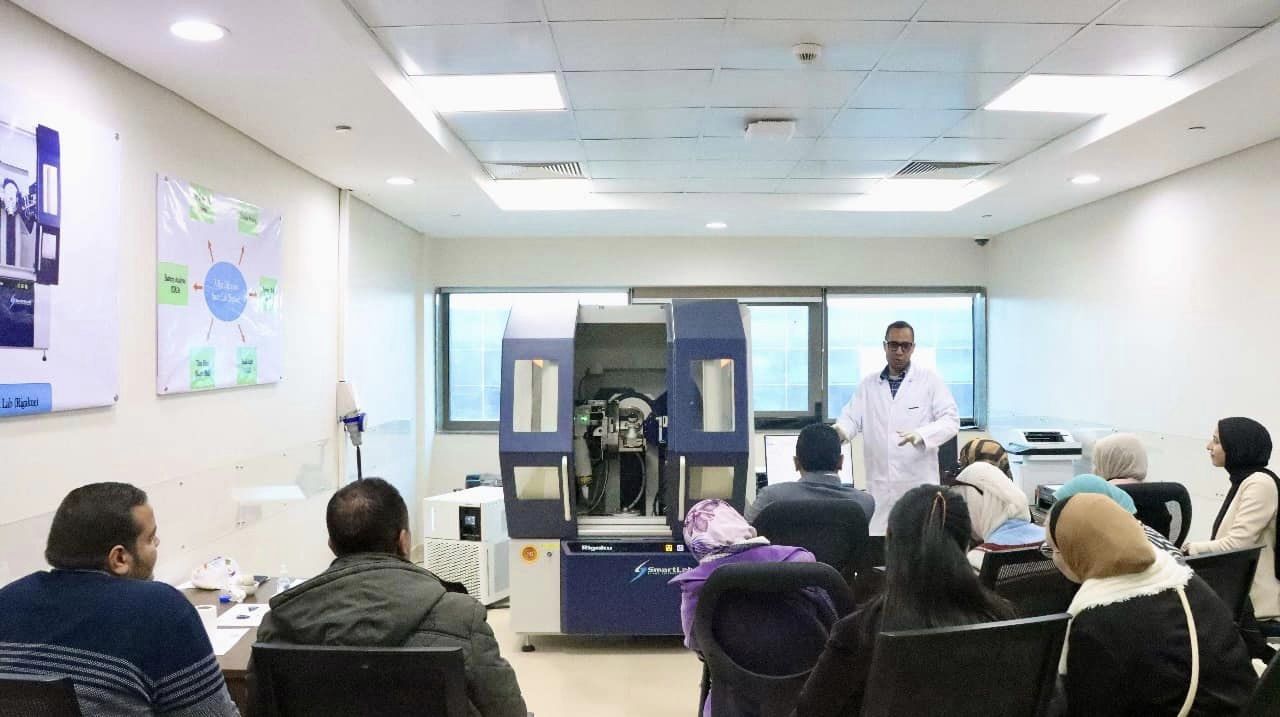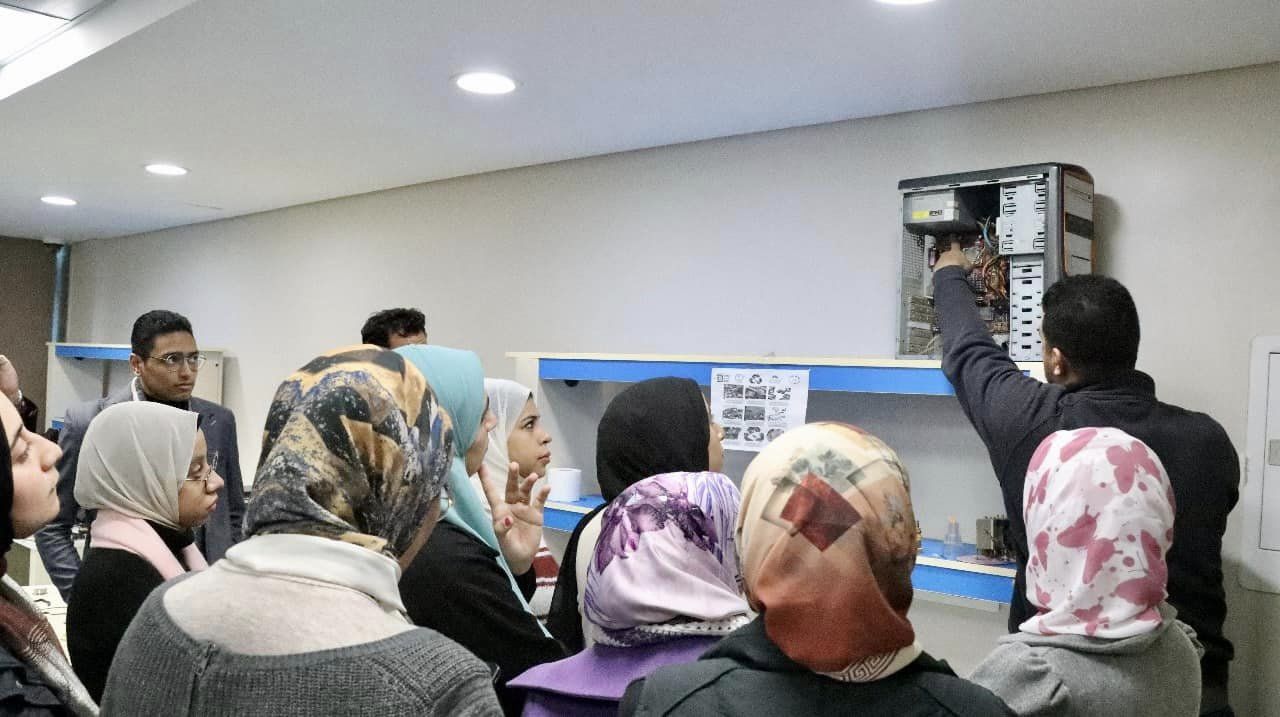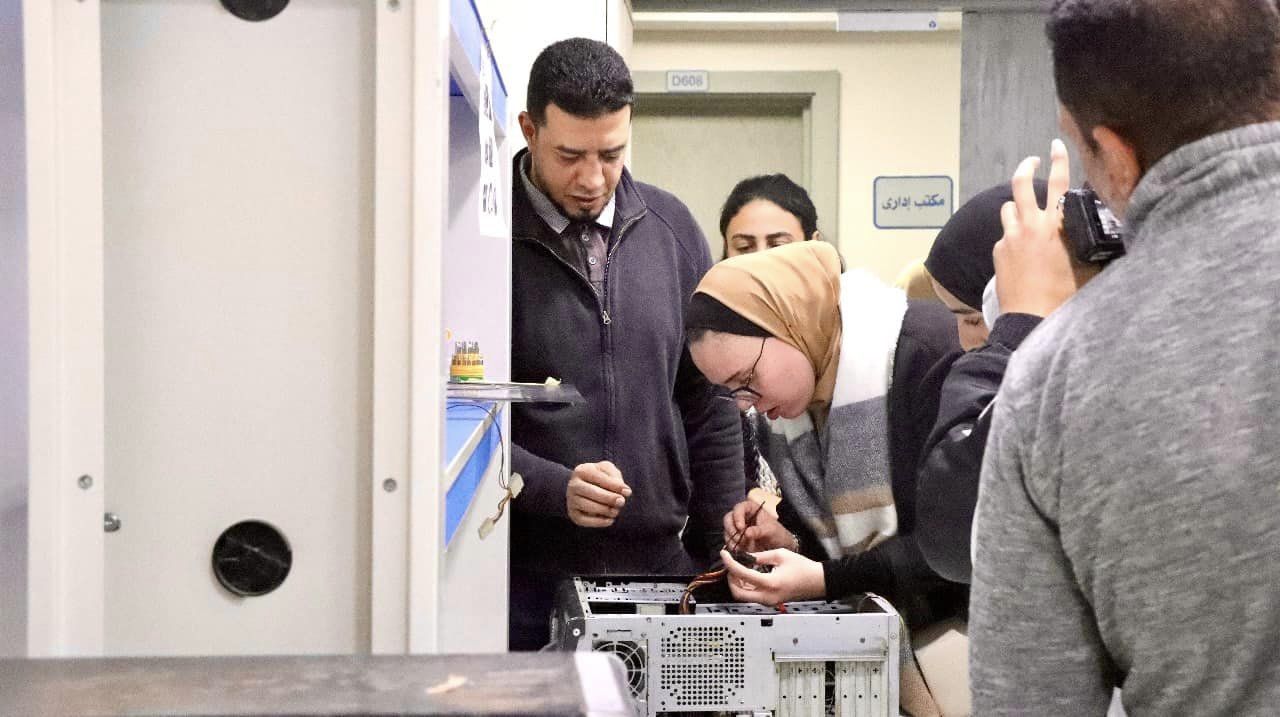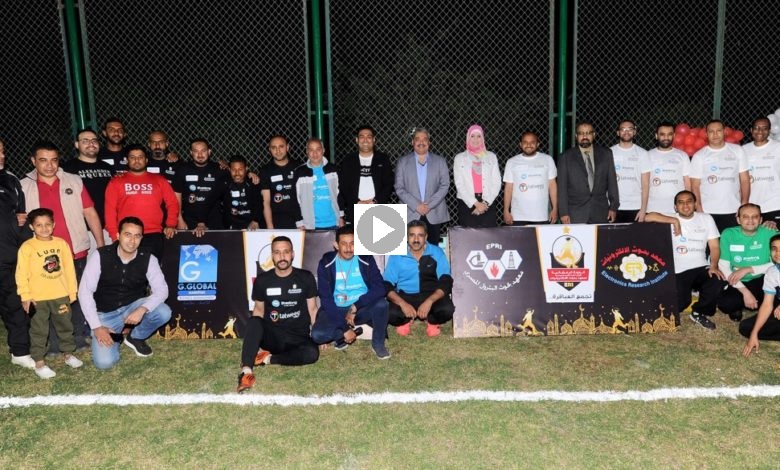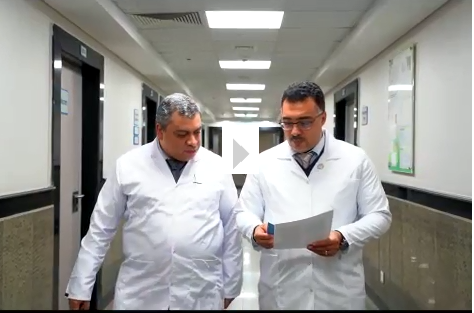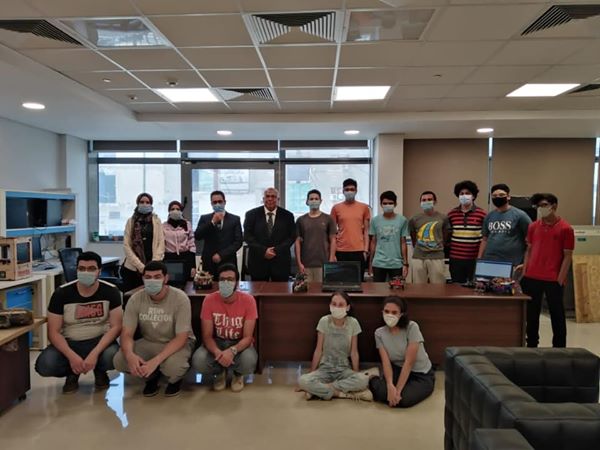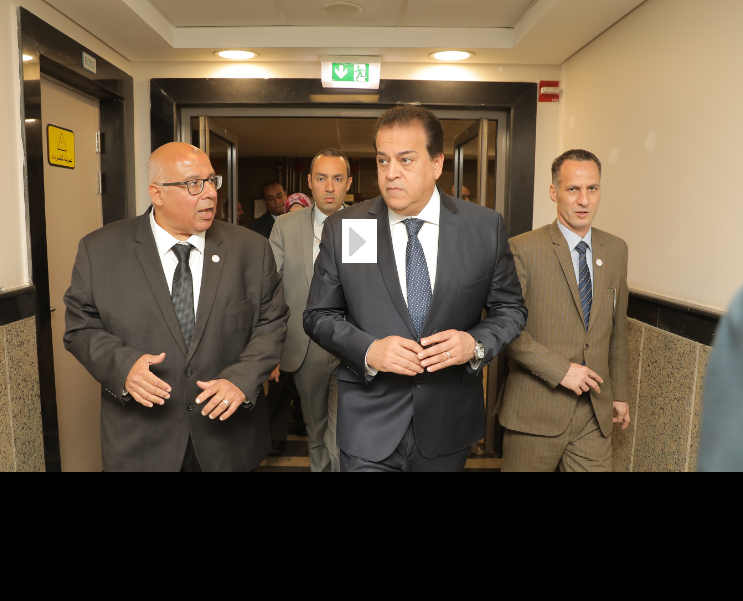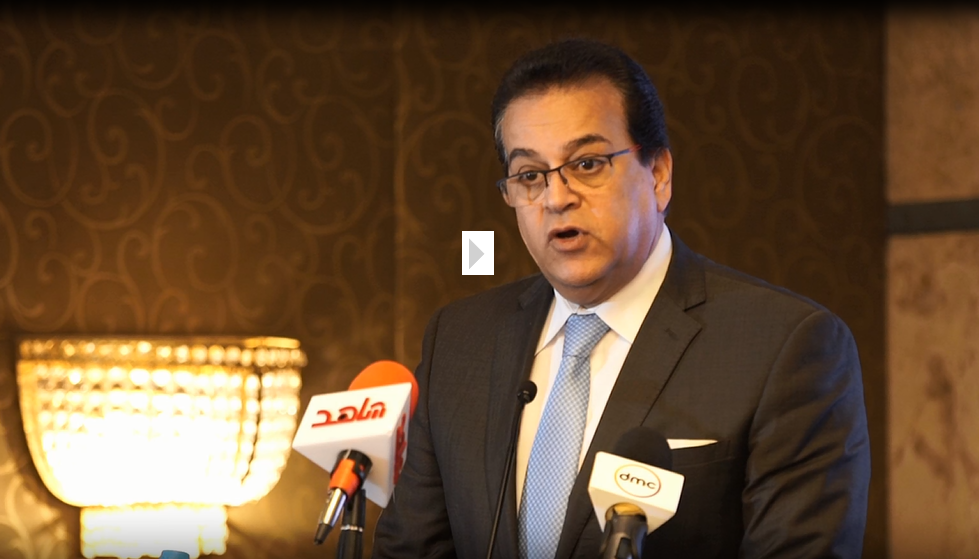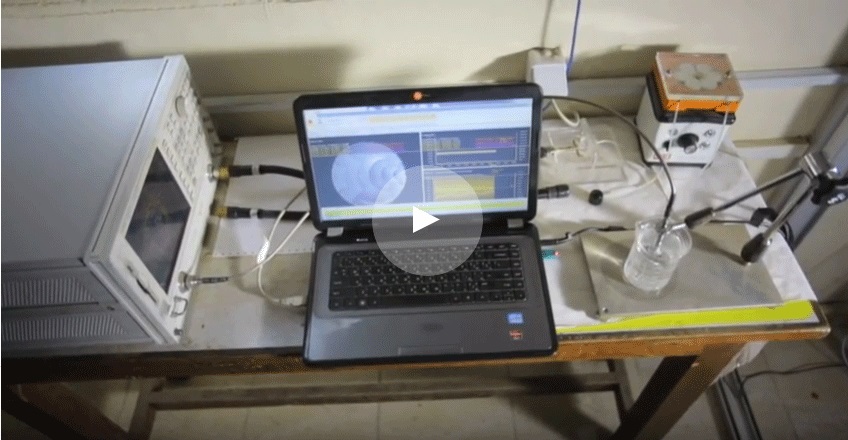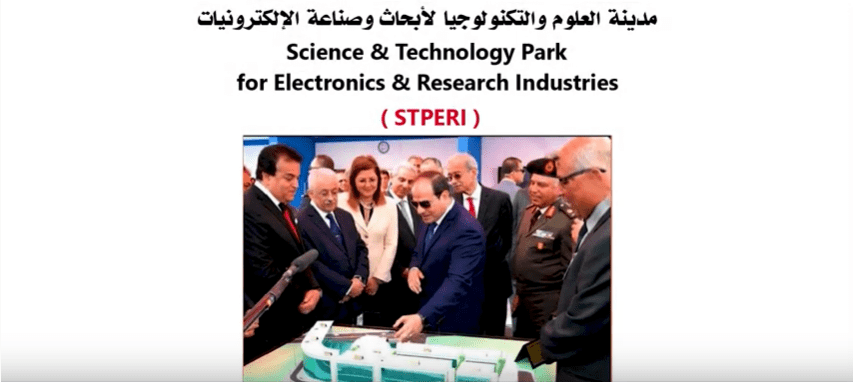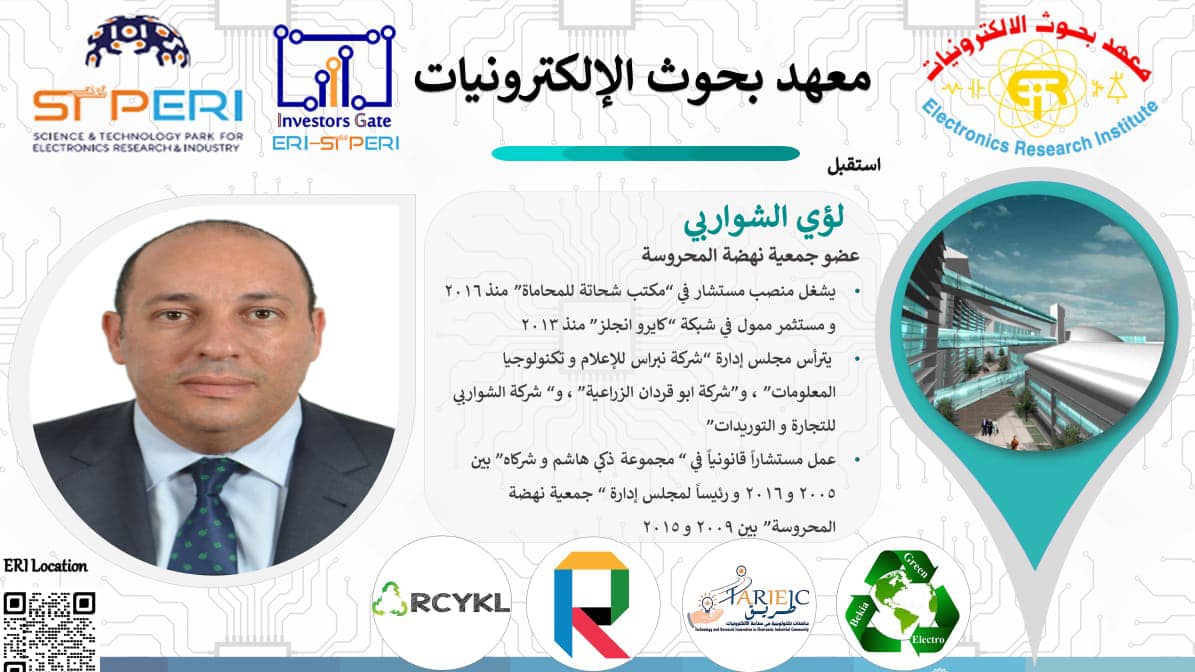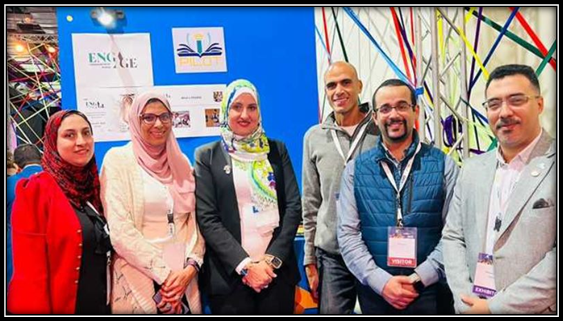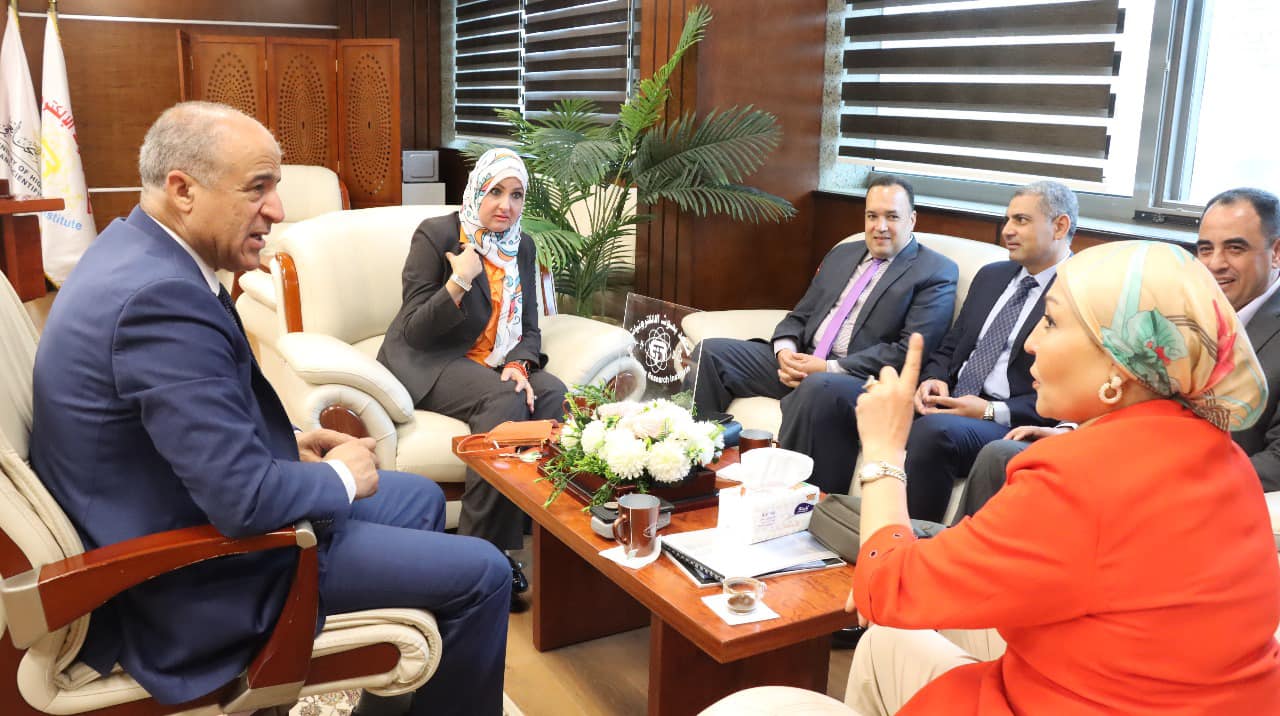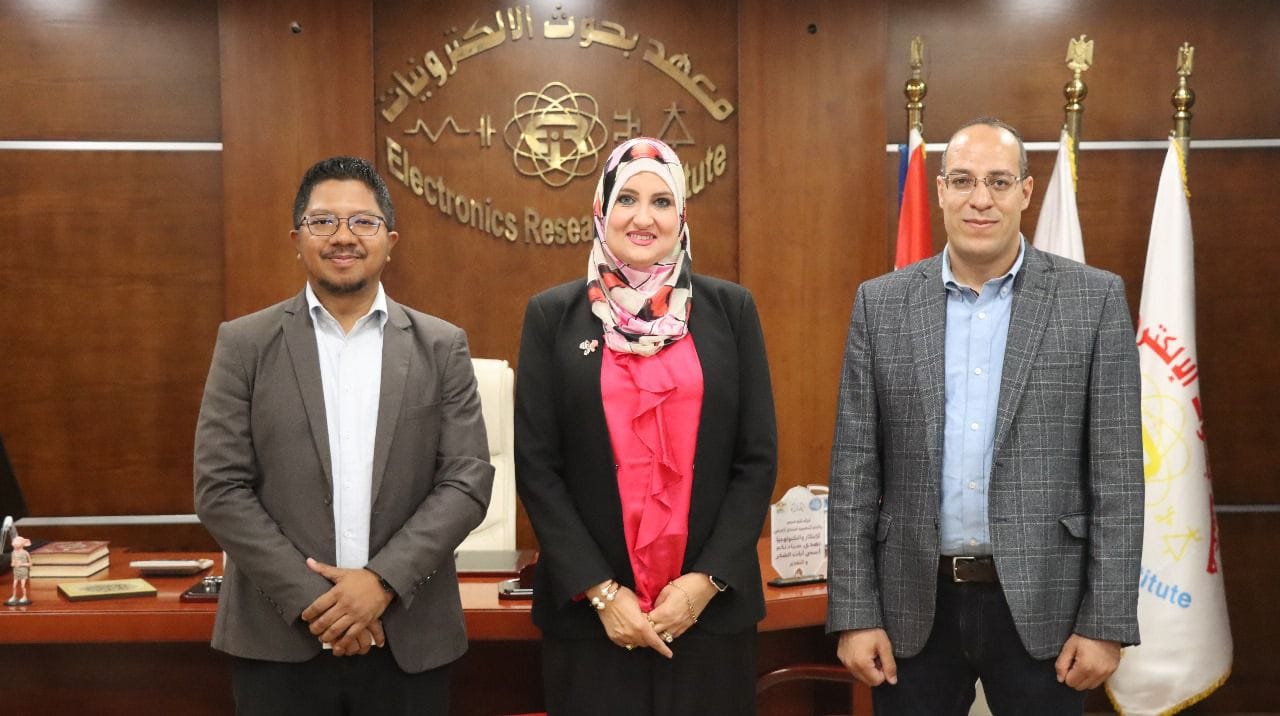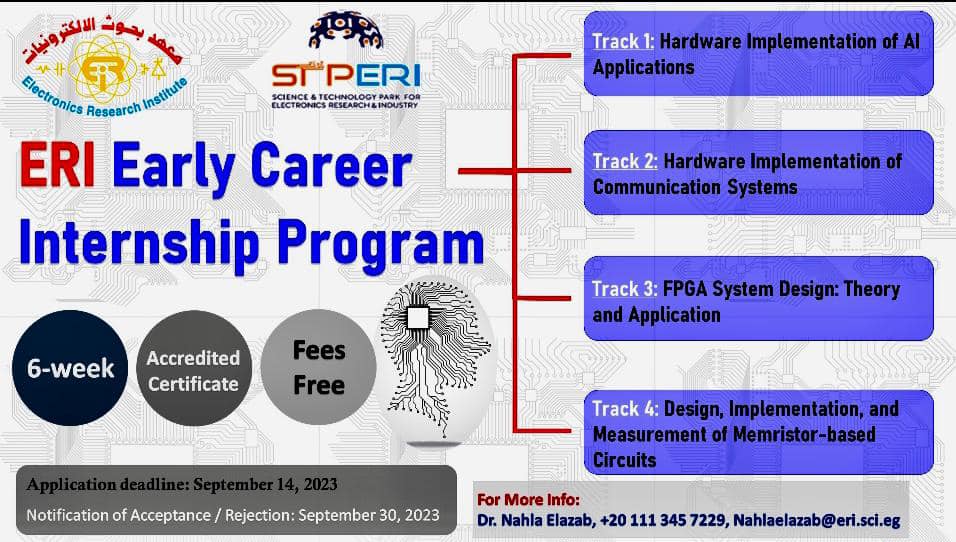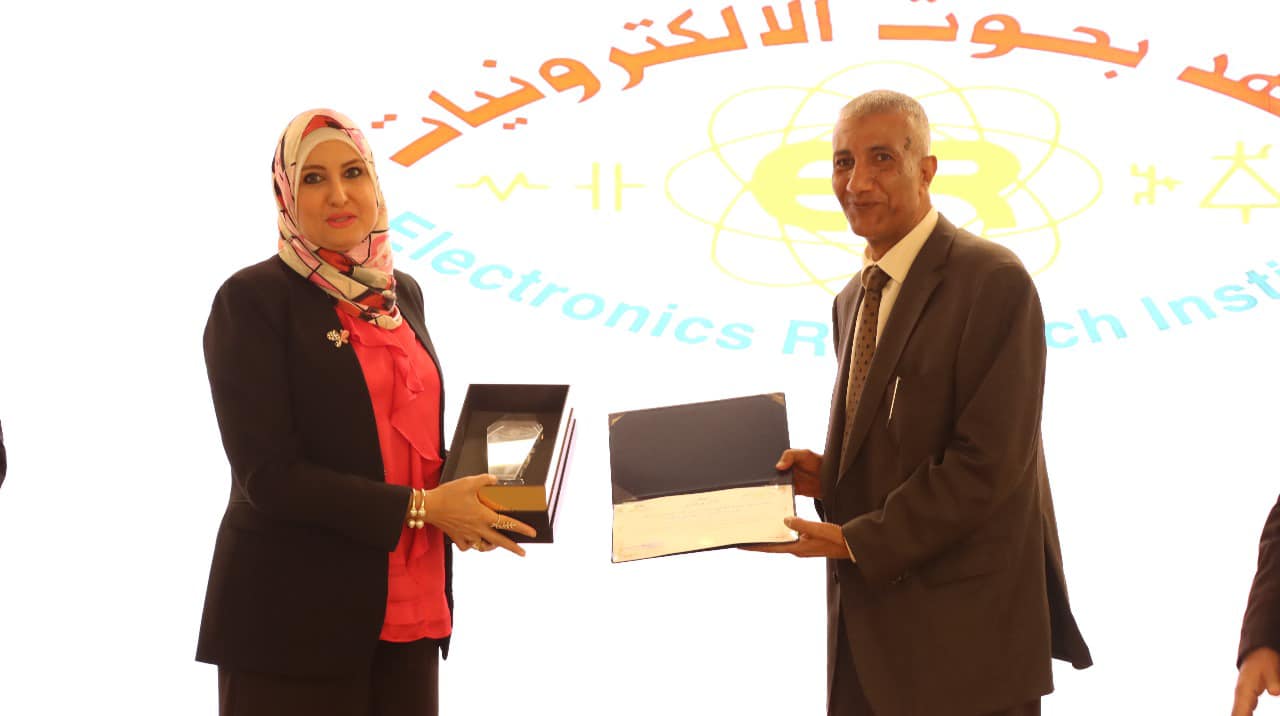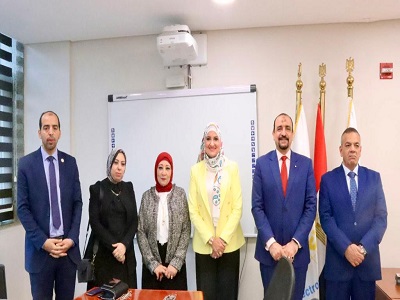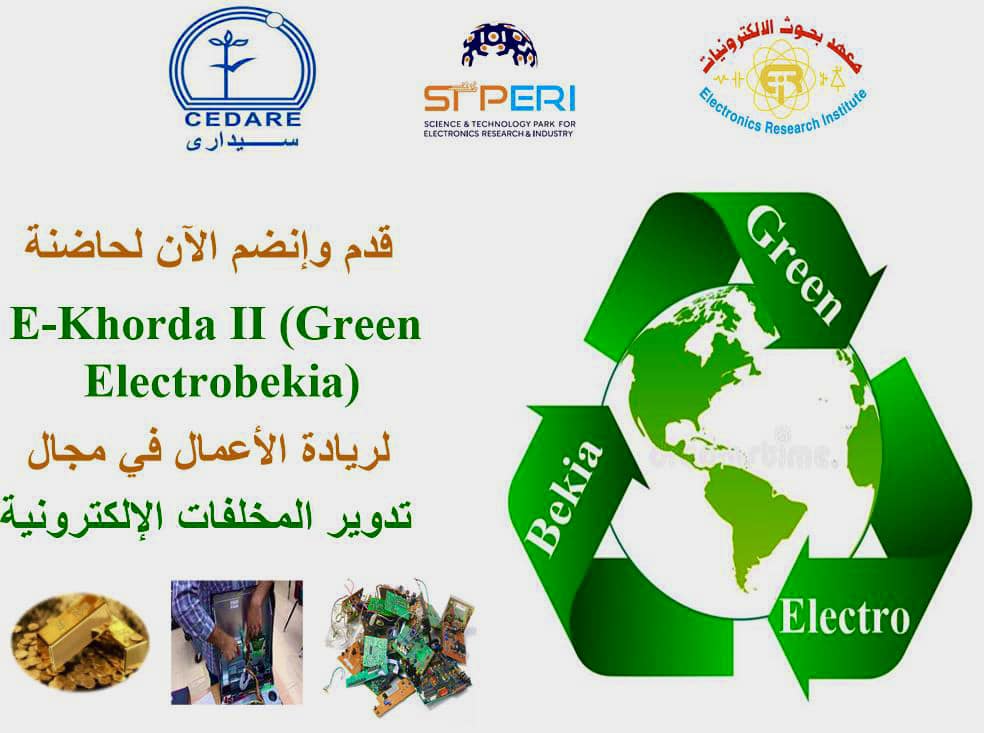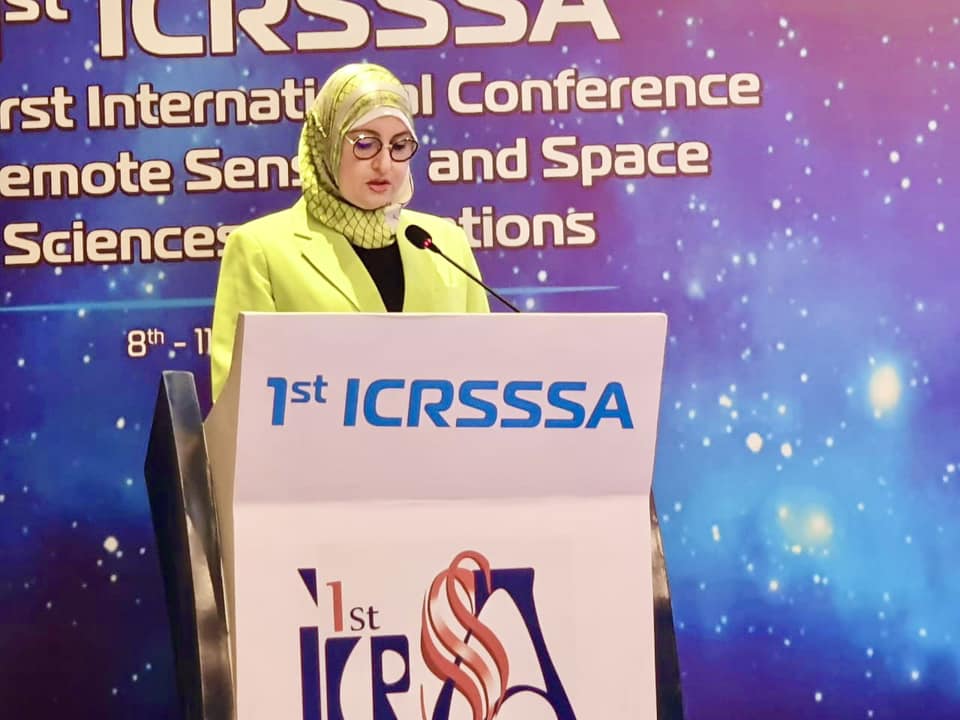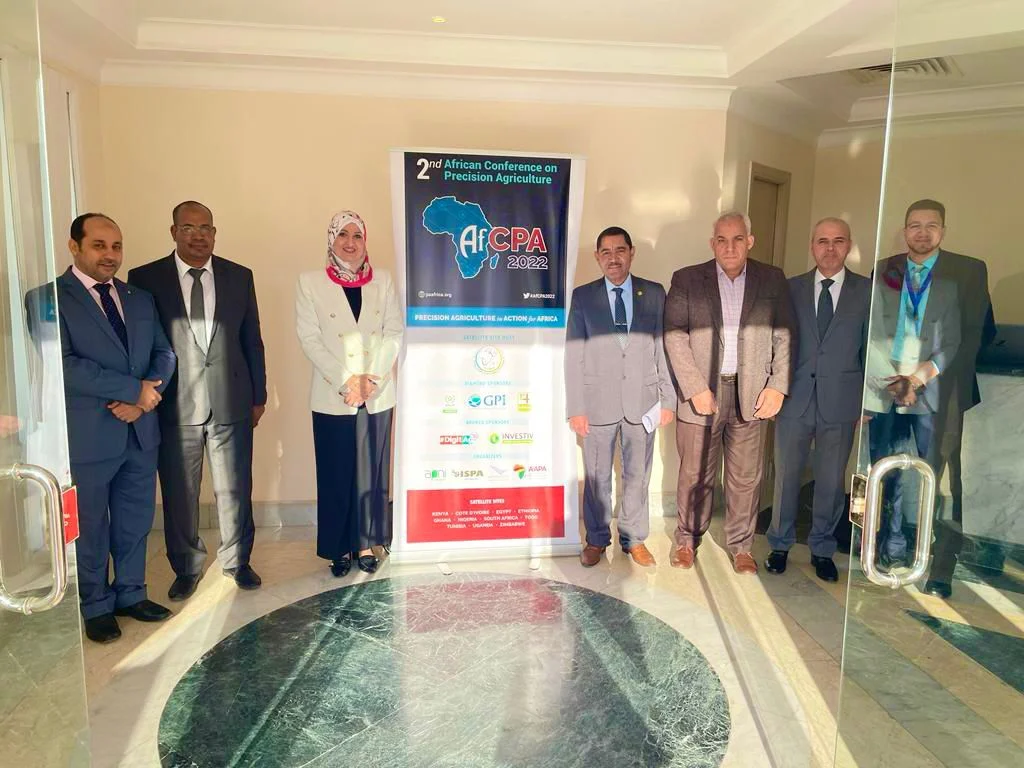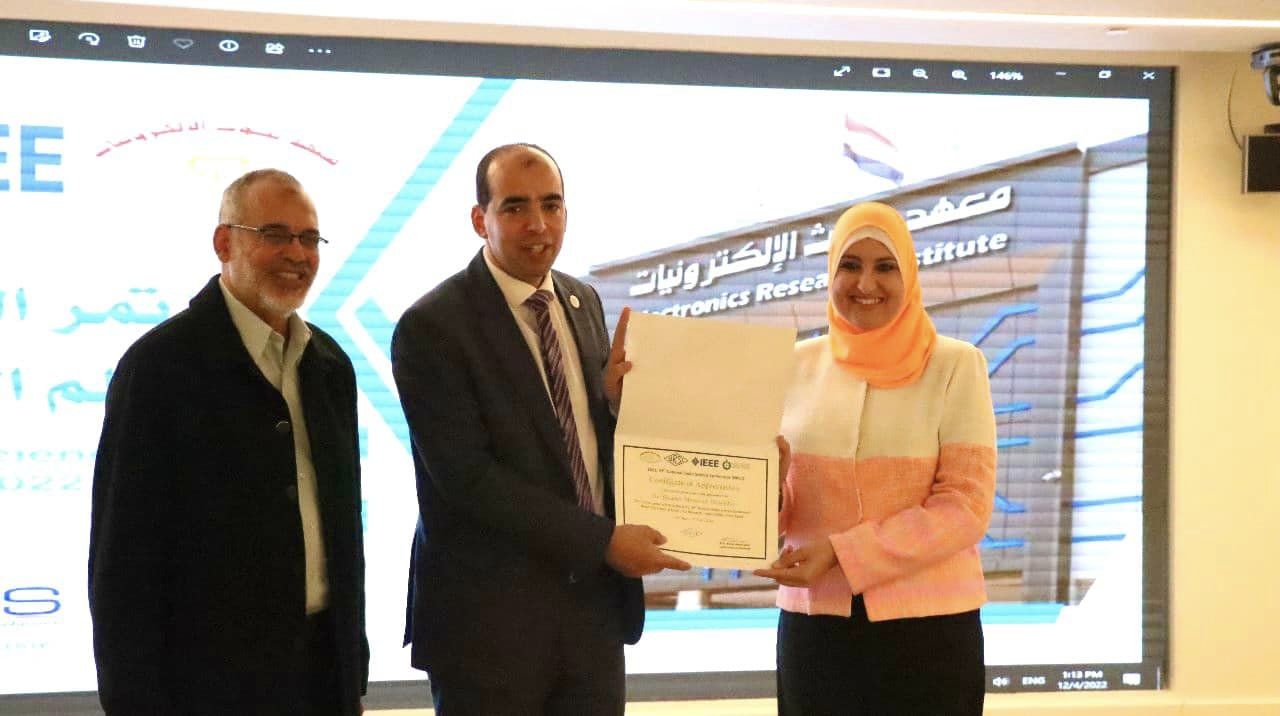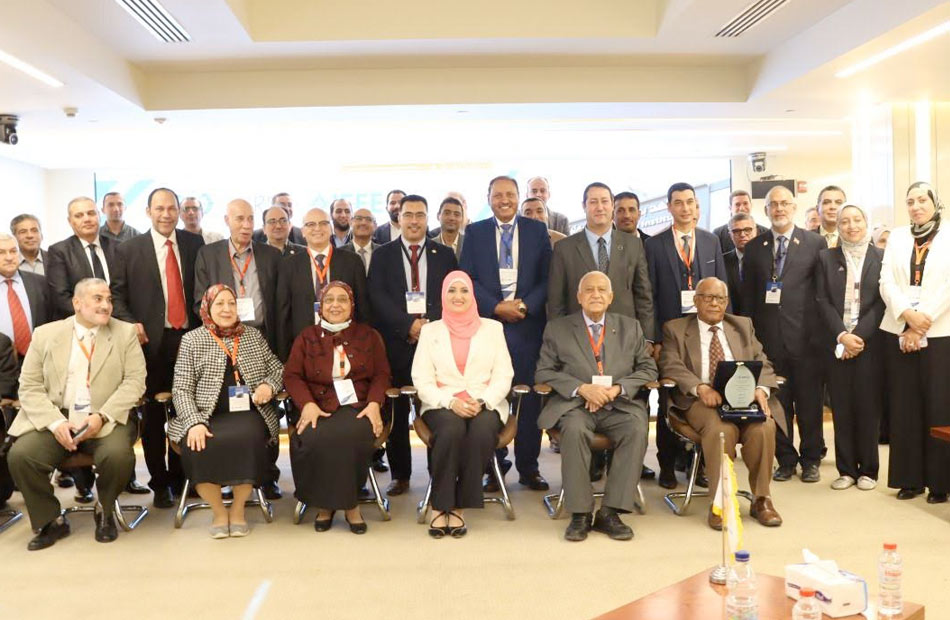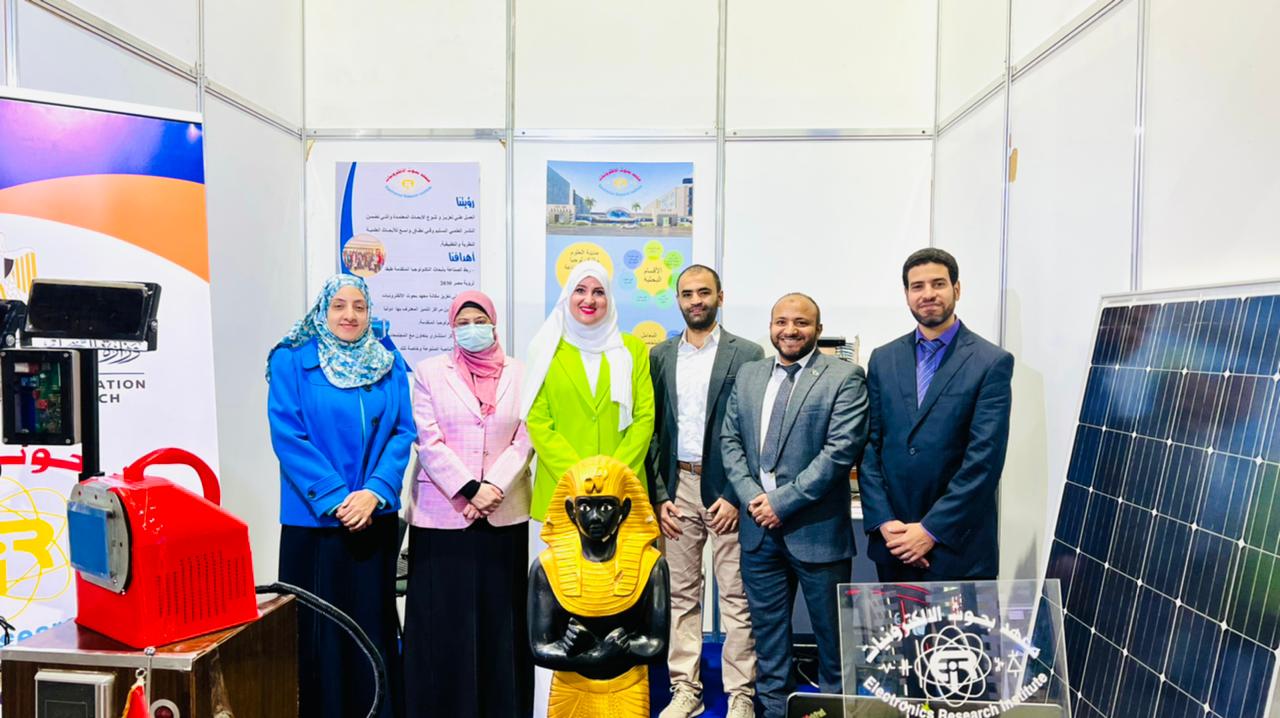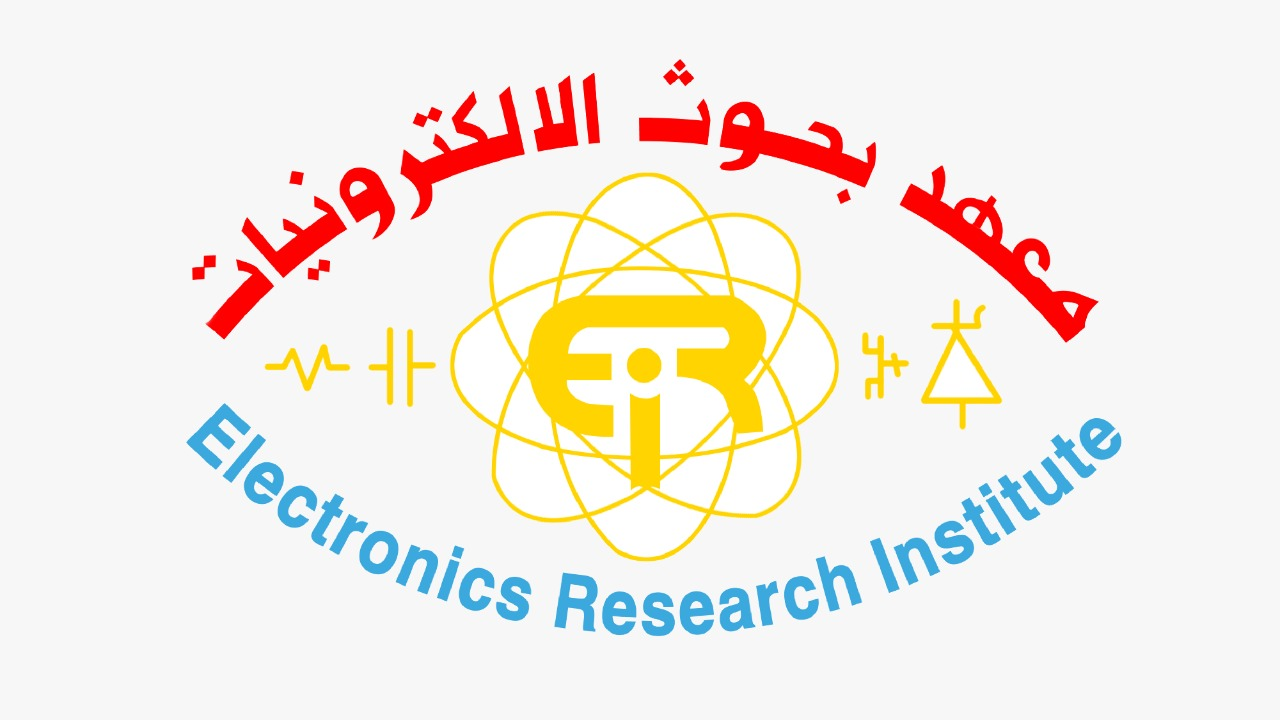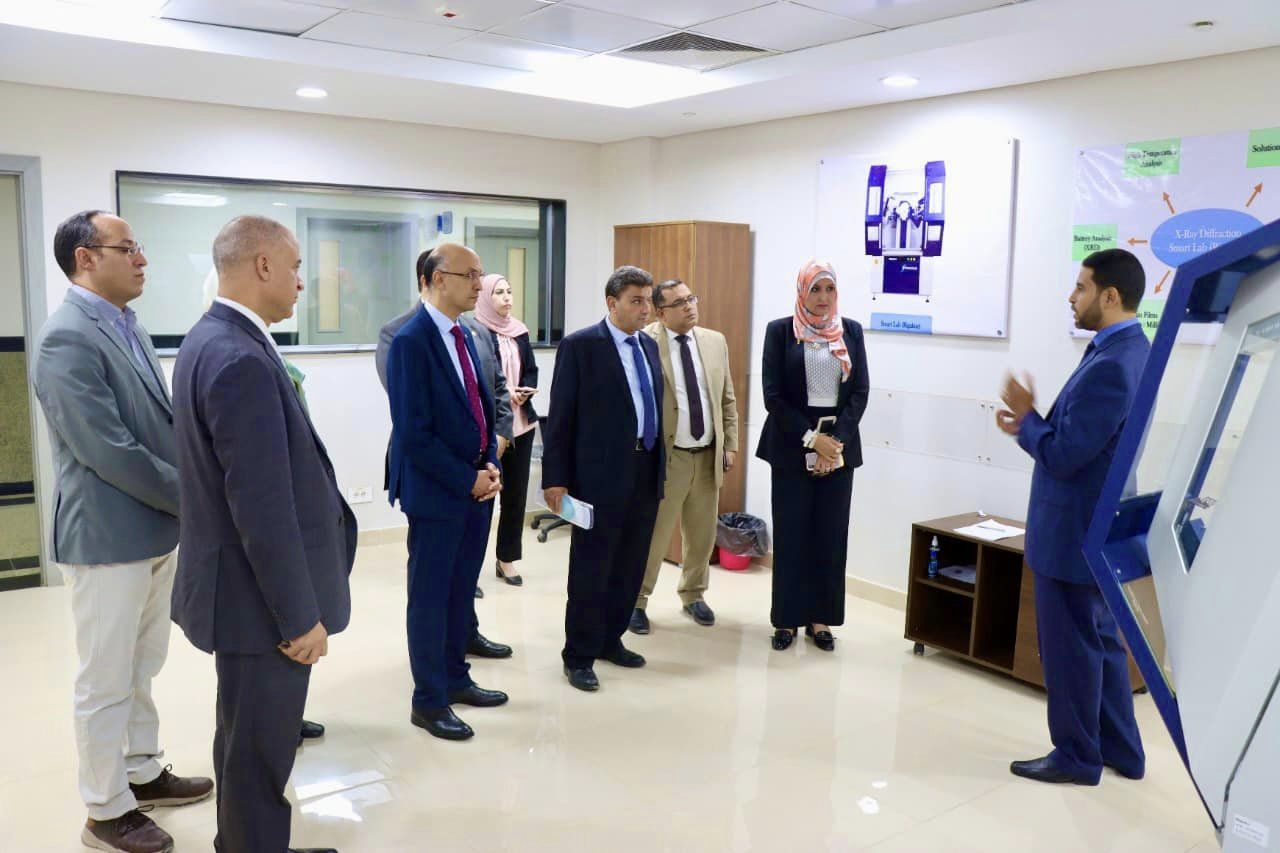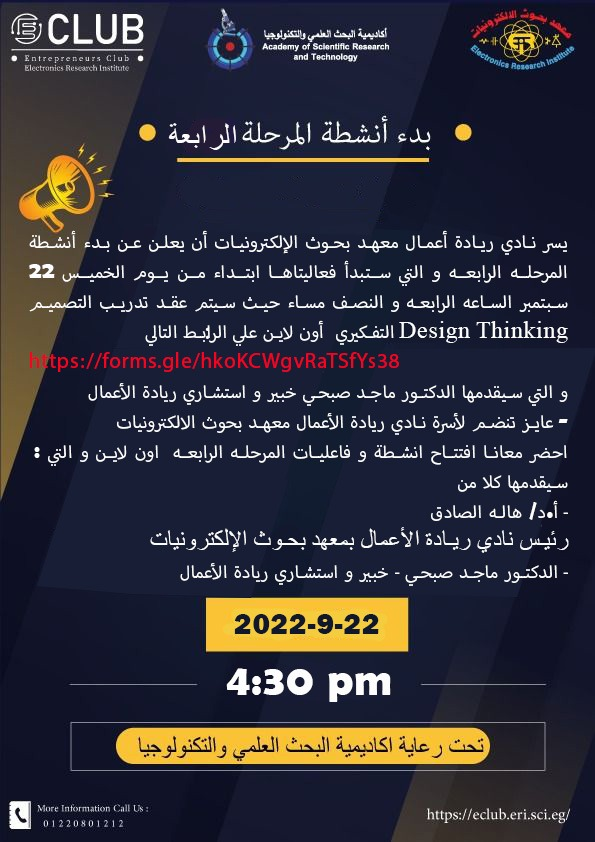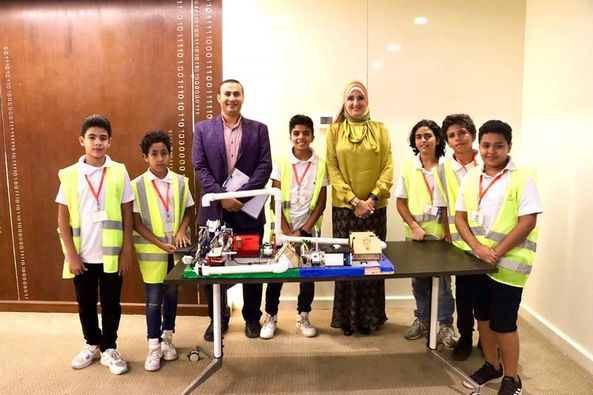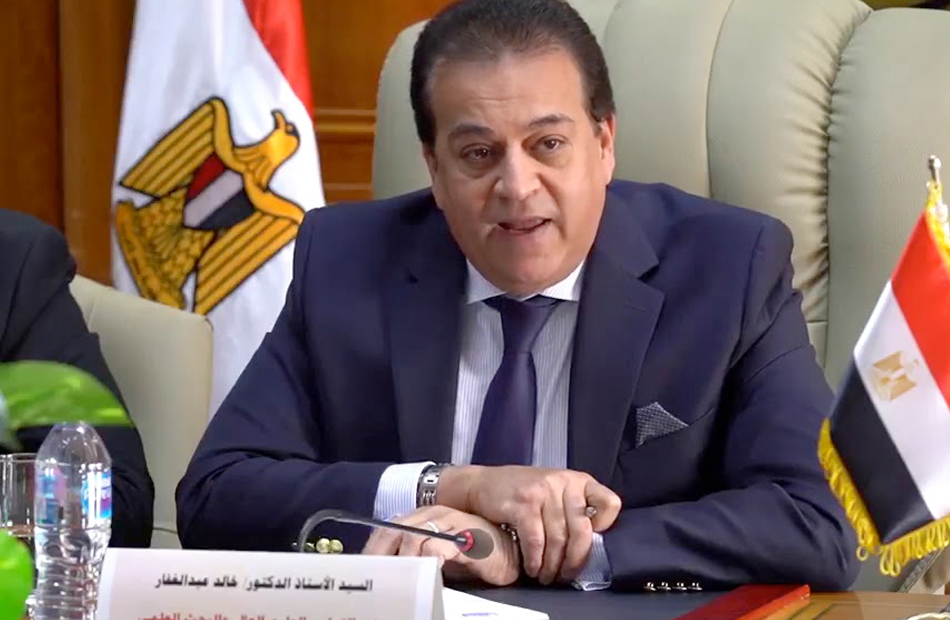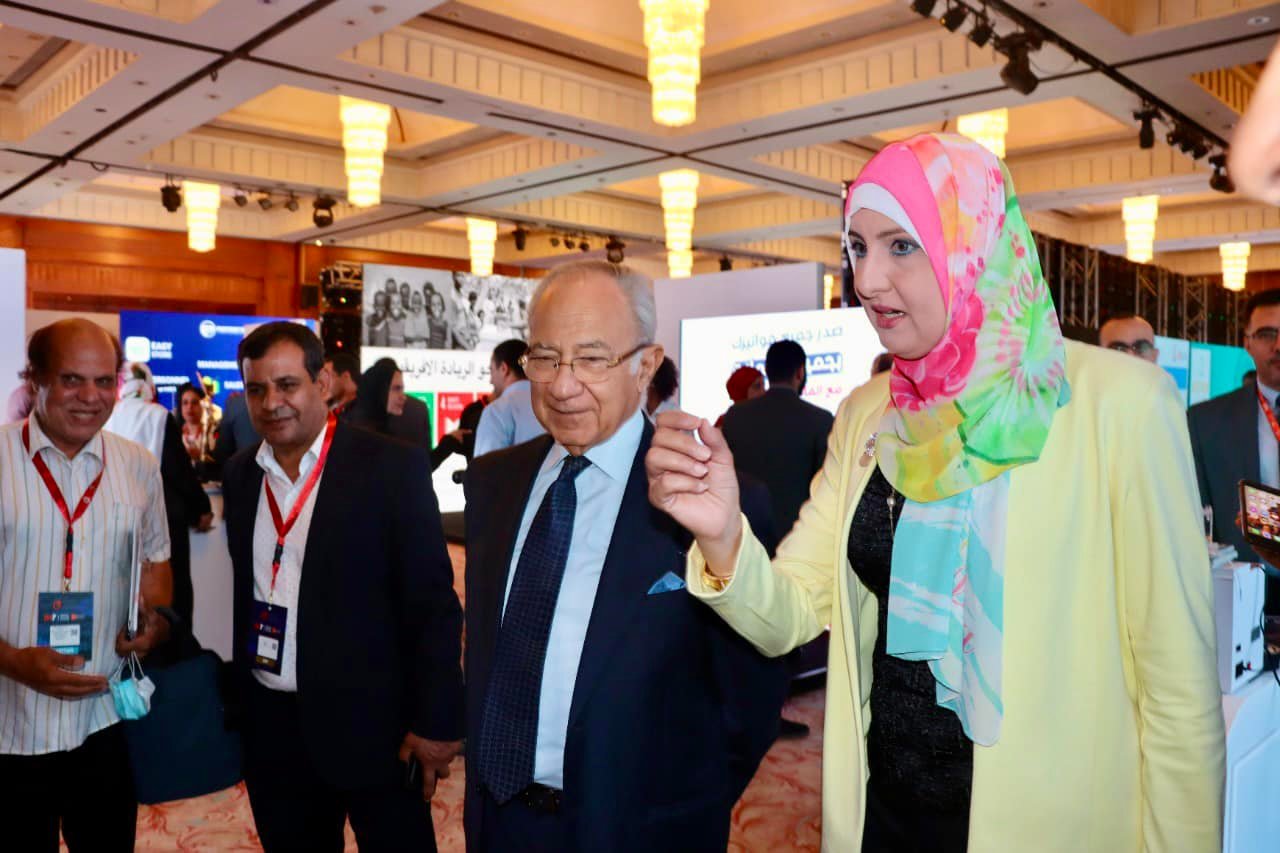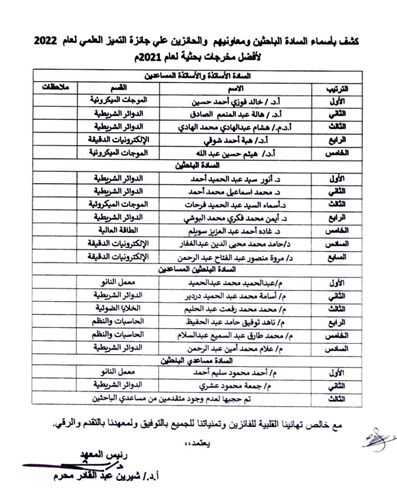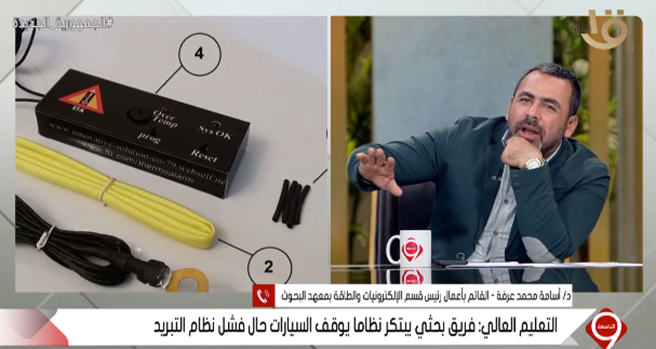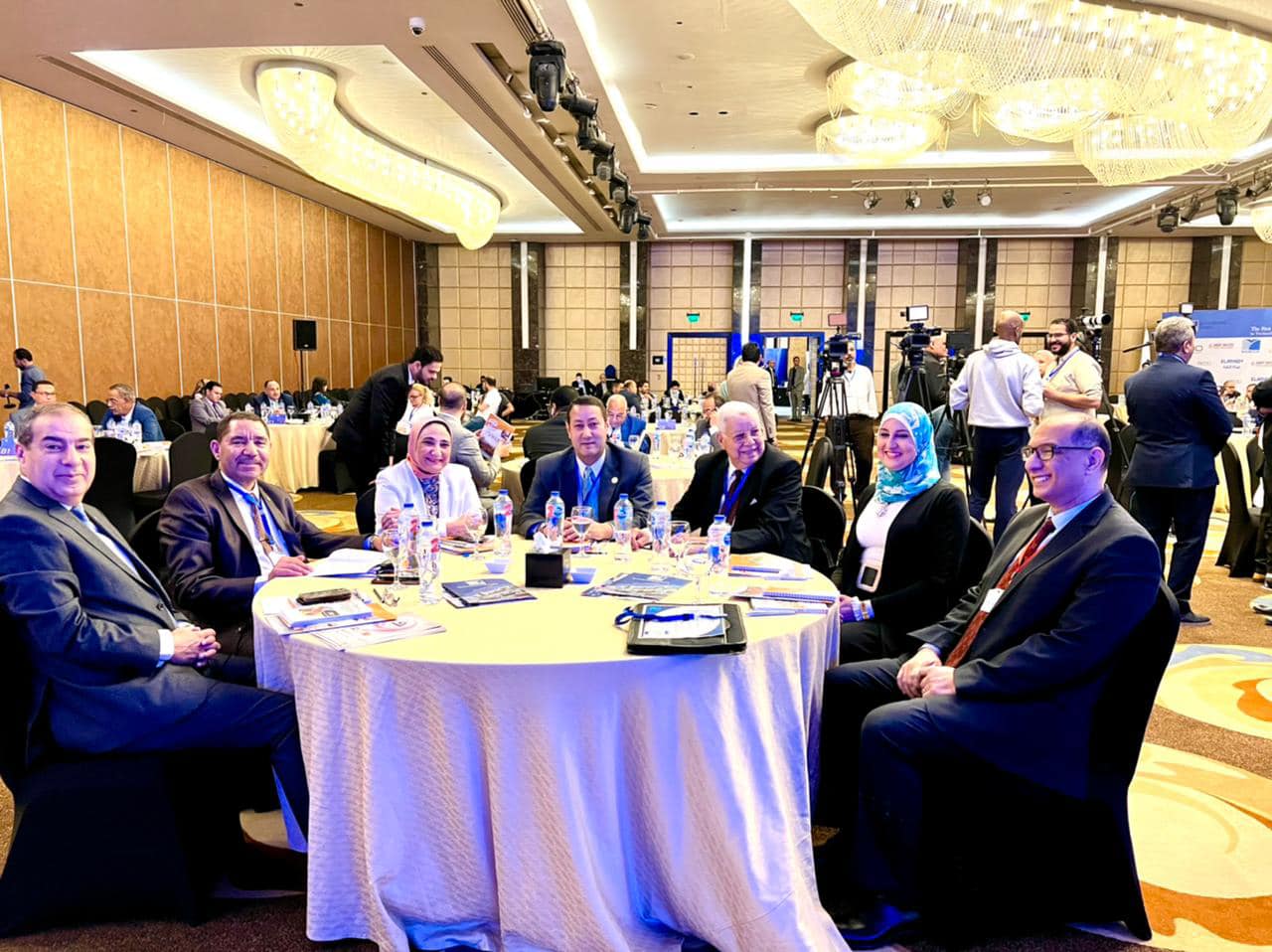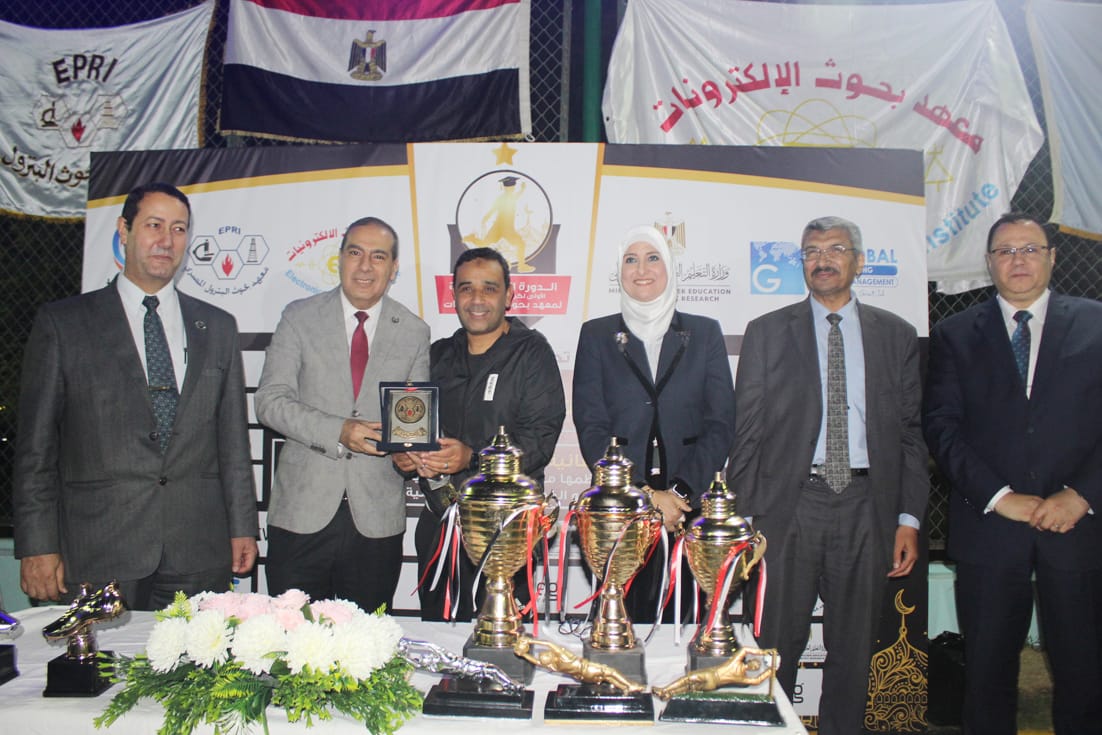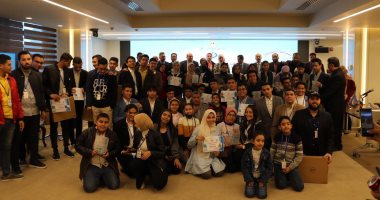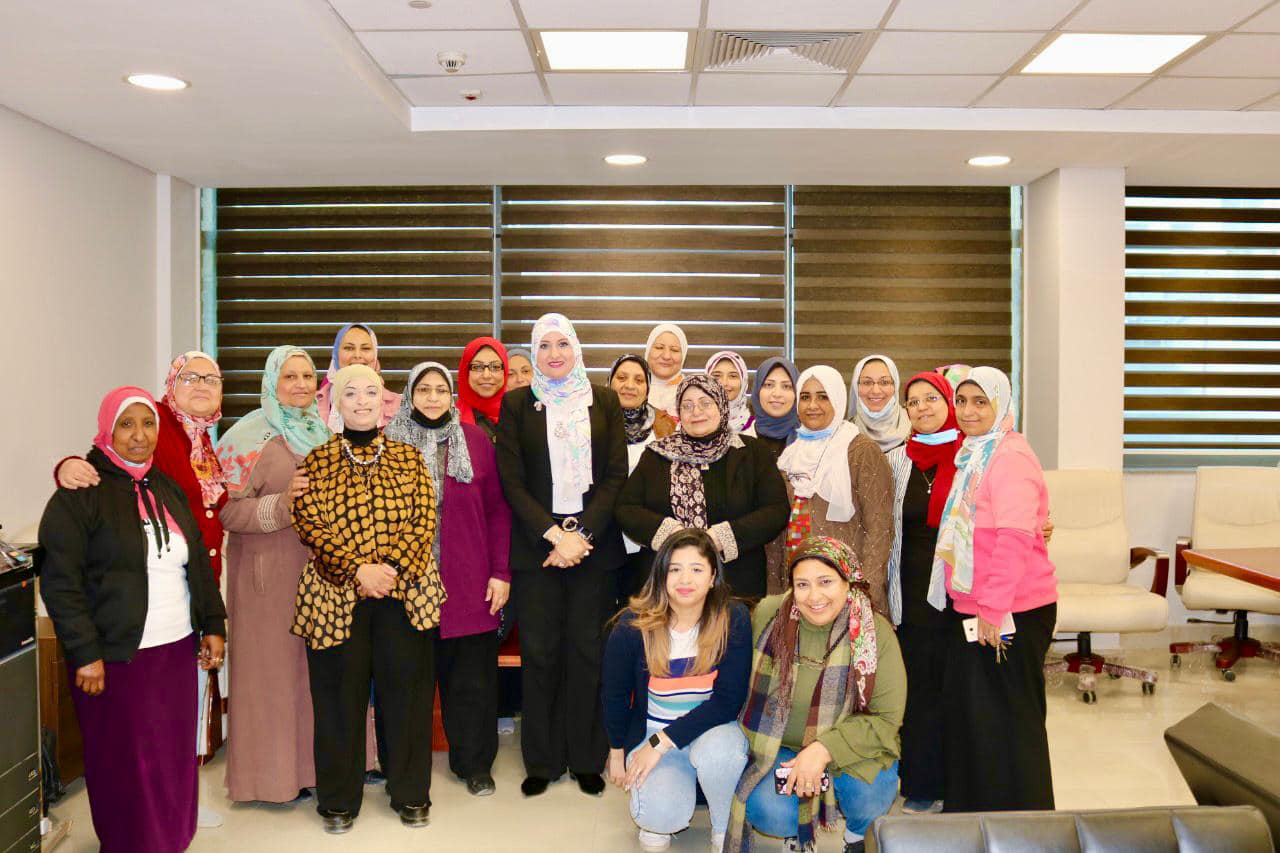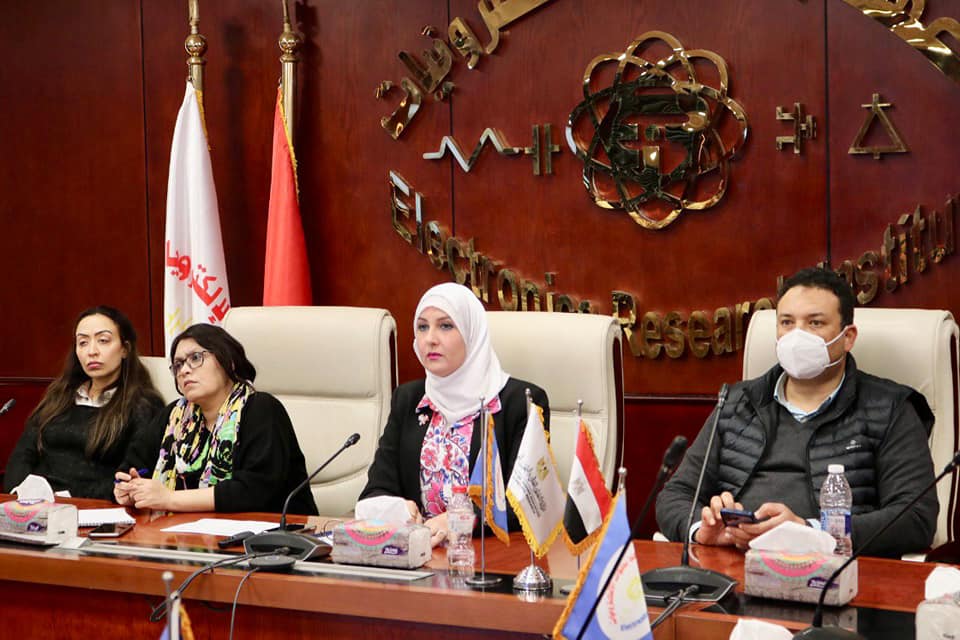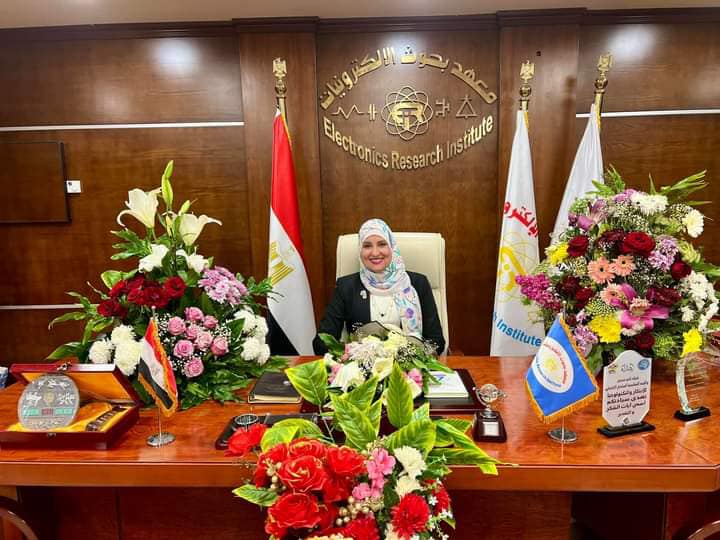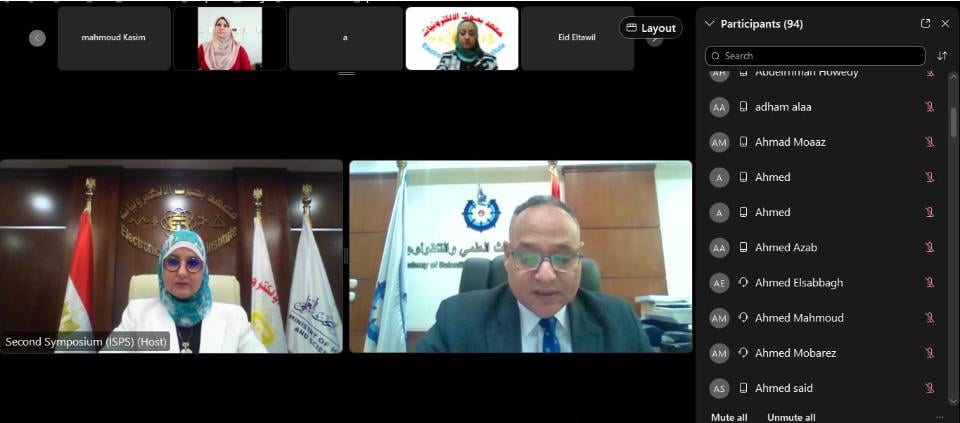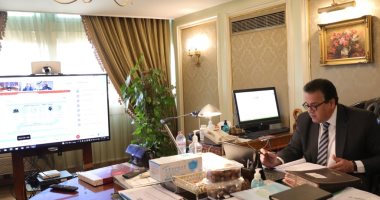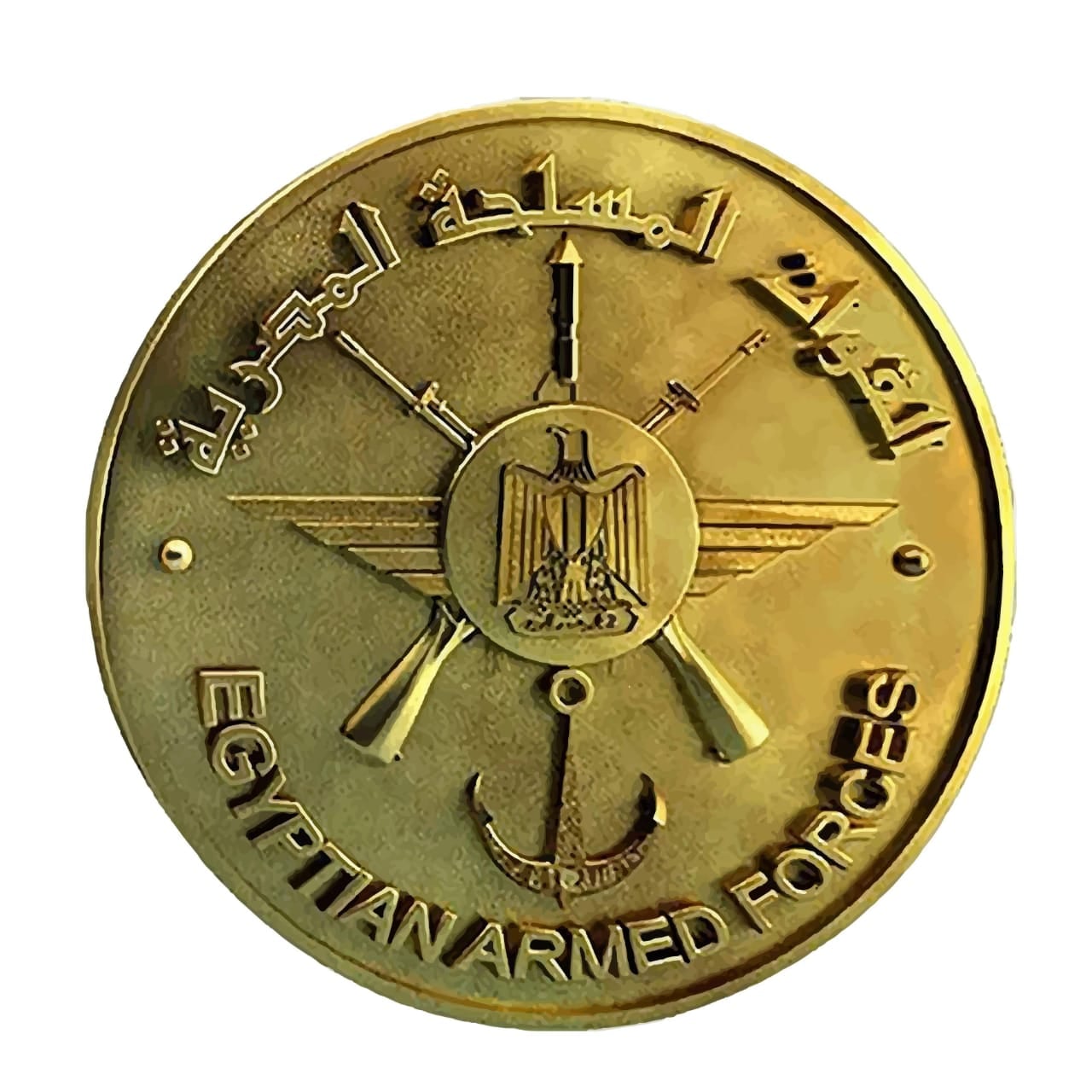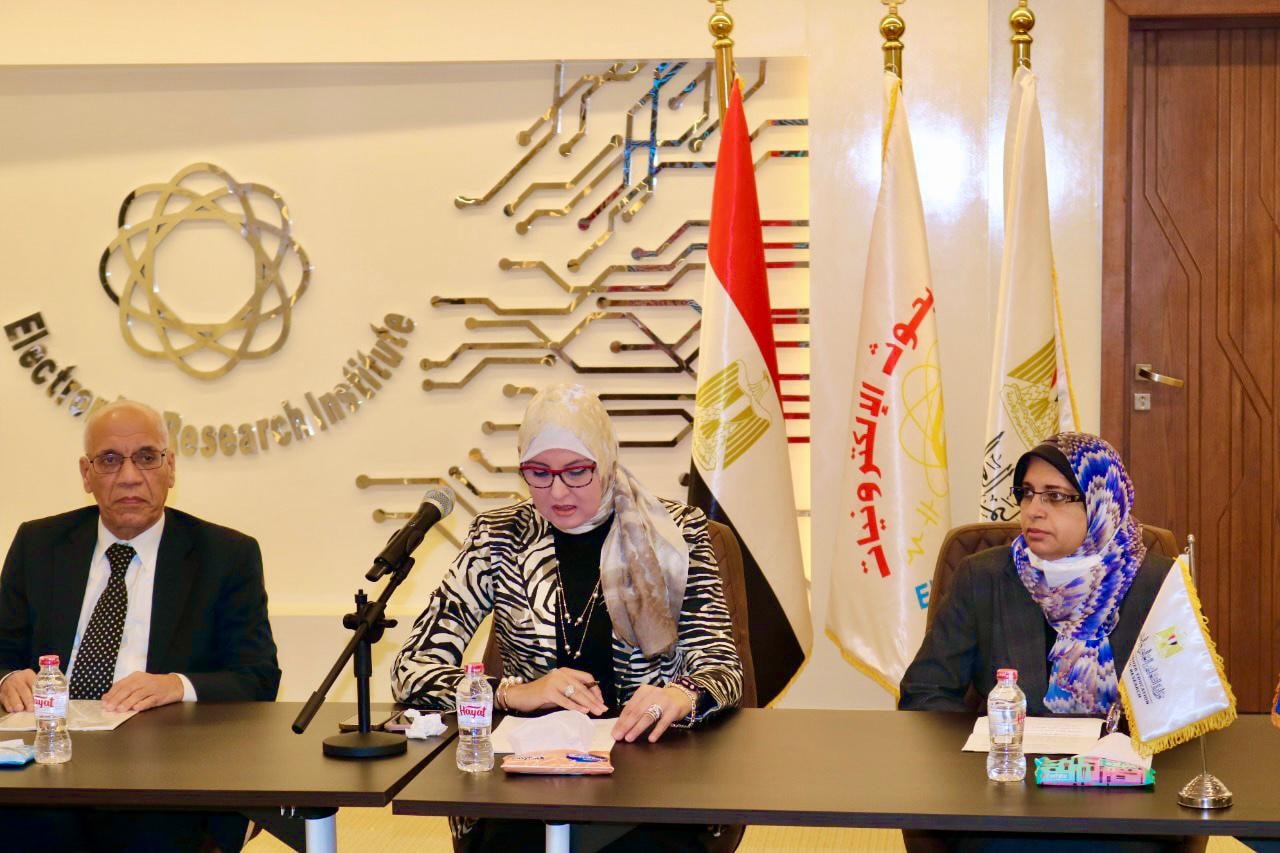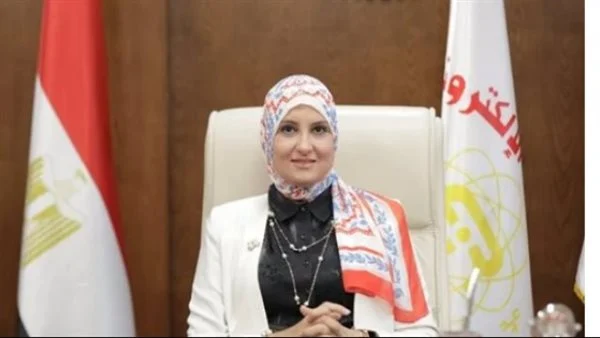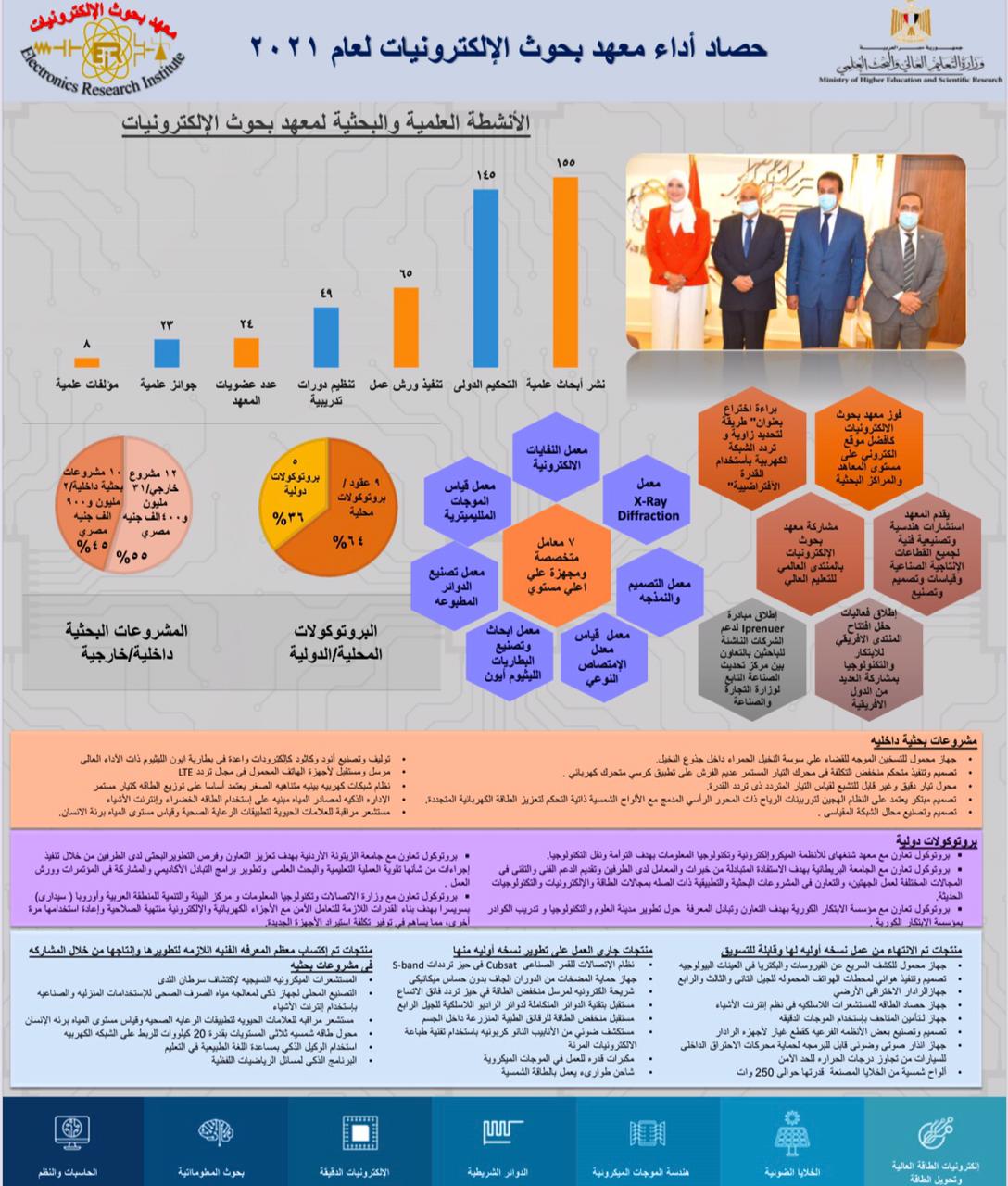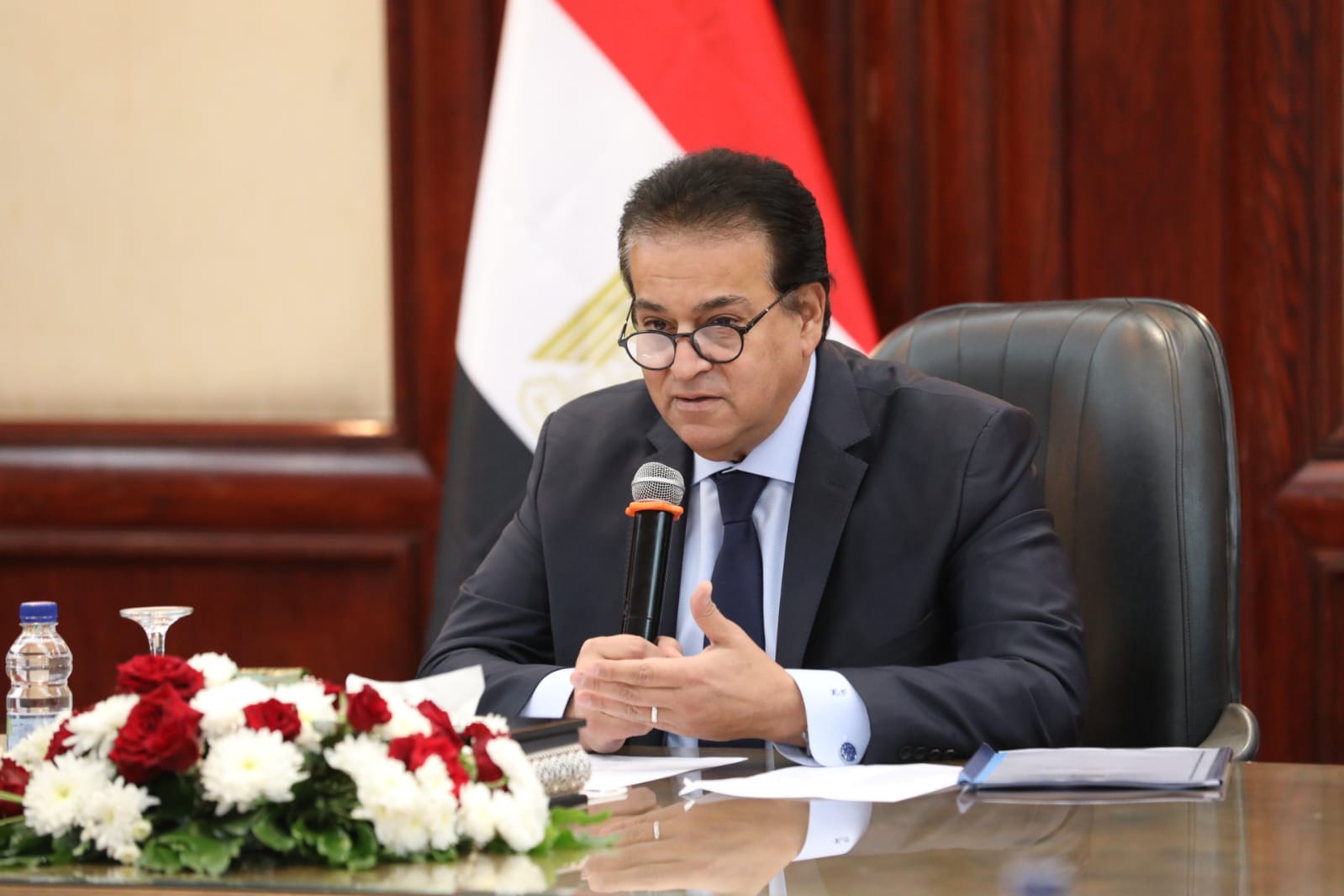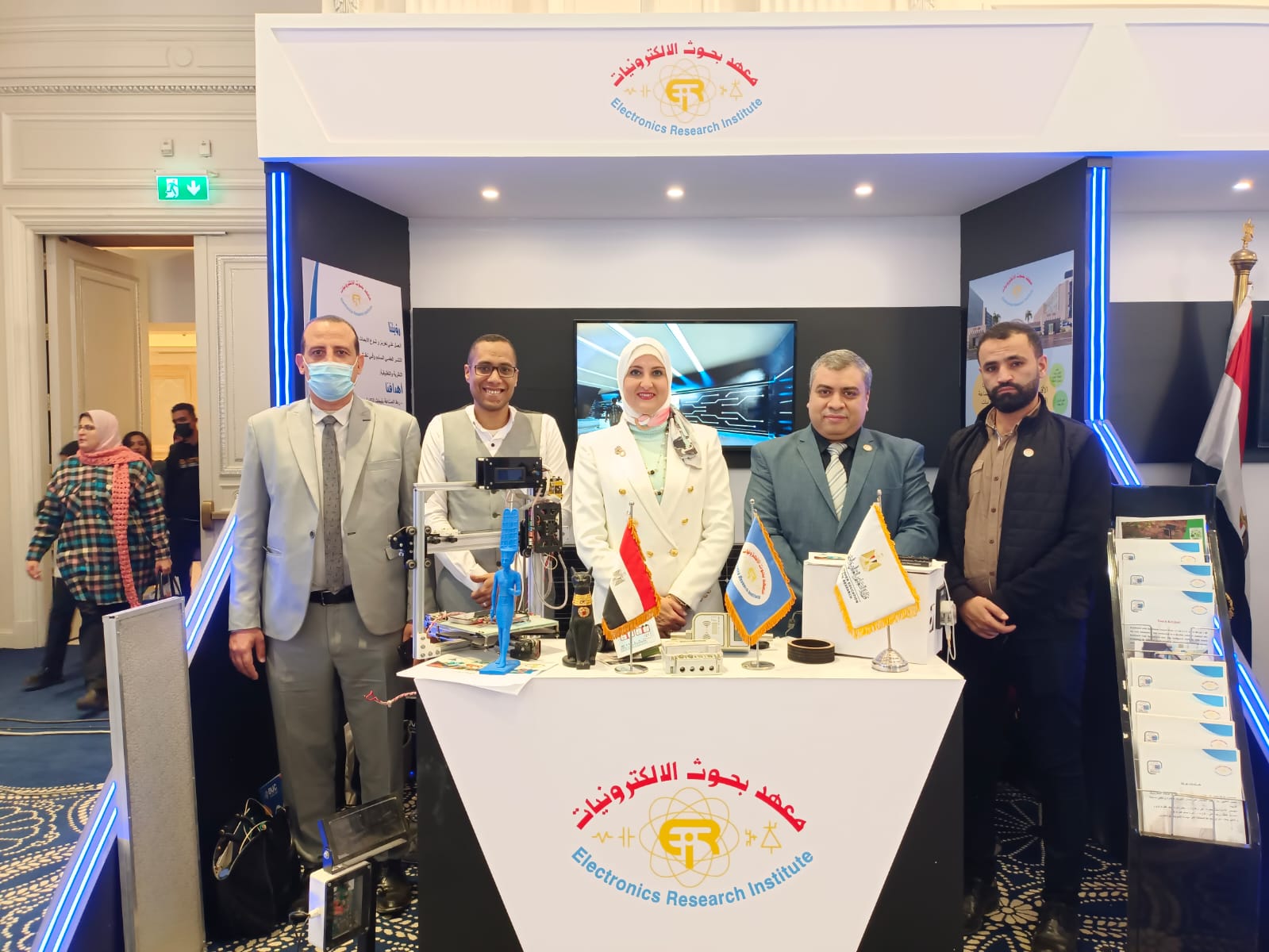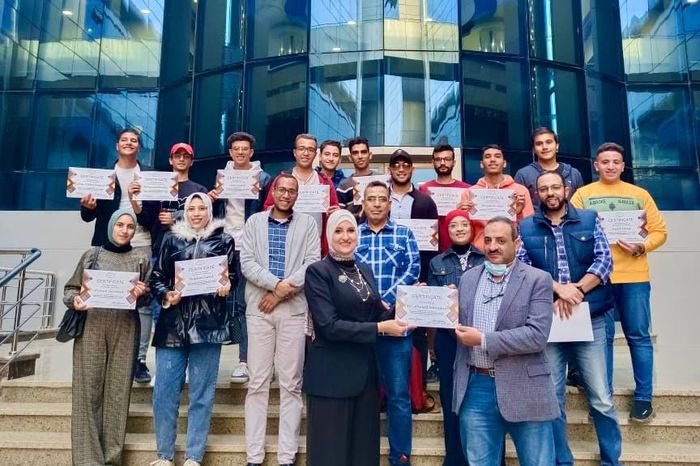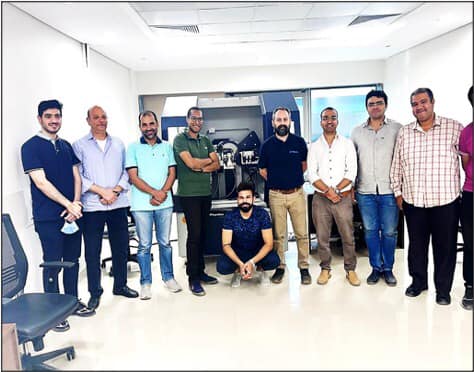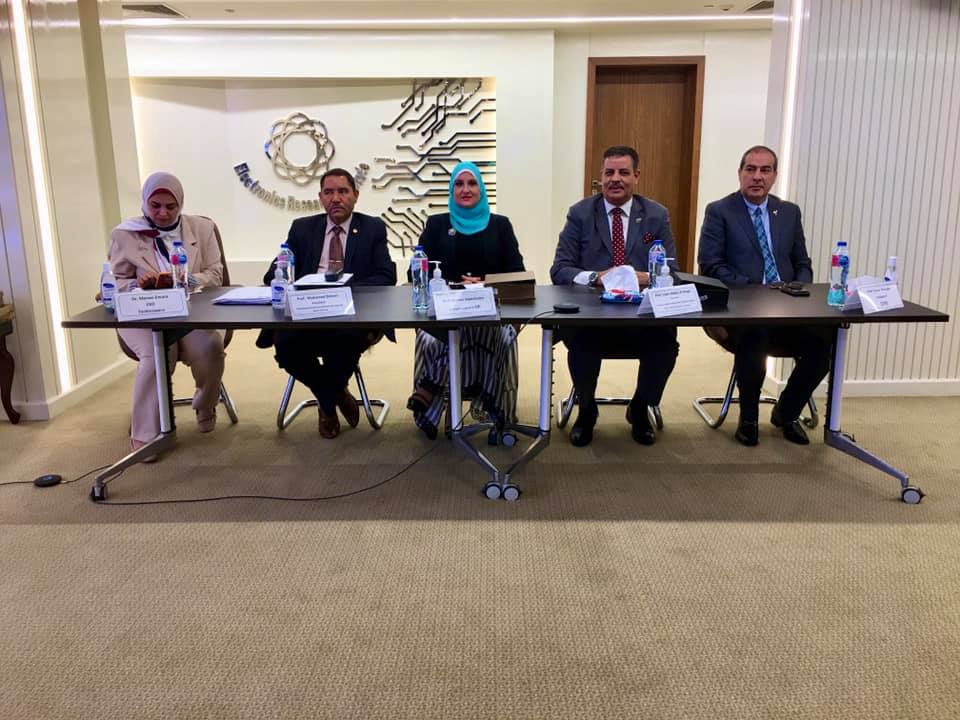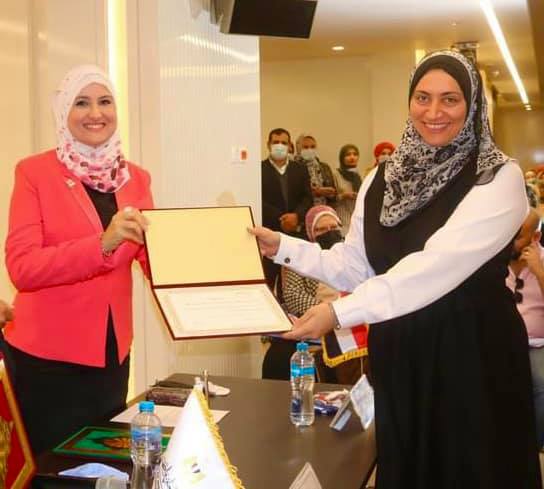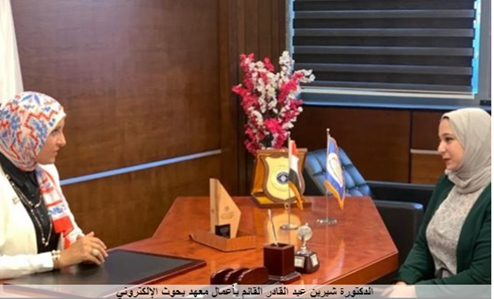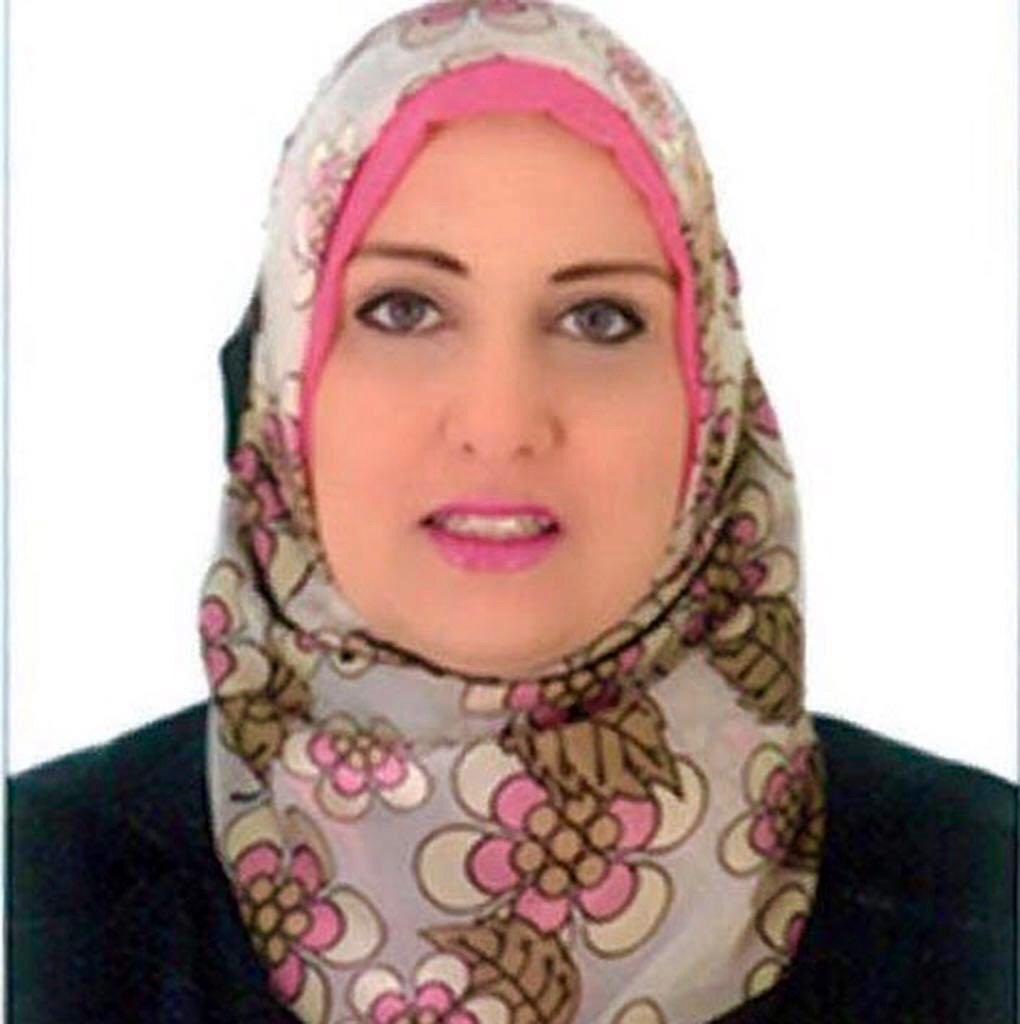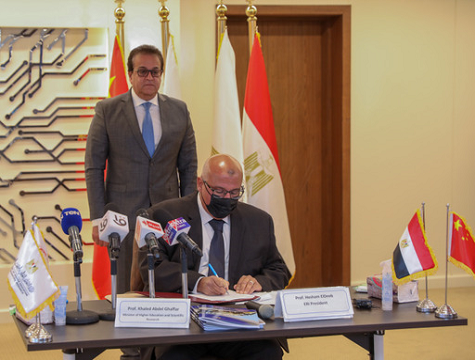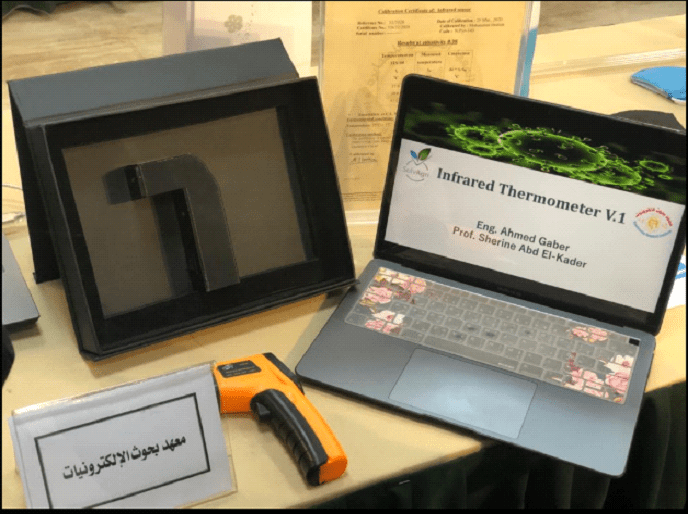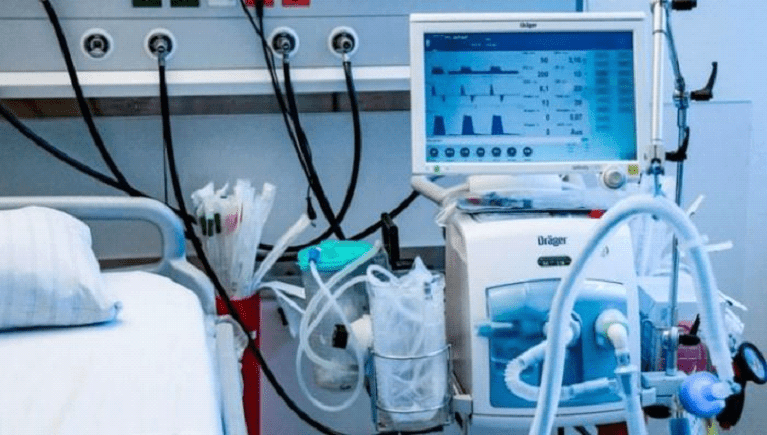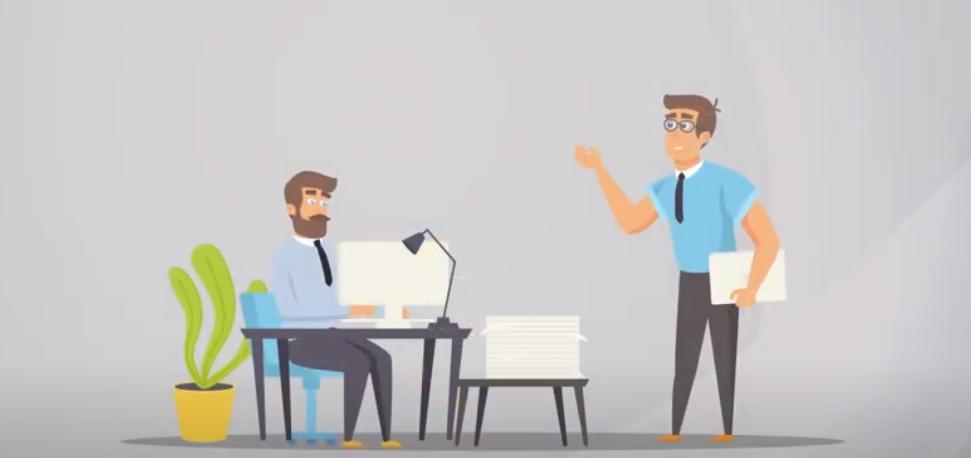ERI has completed the training from WE Technical Schools on Ewaste MGMT
Ministry of Higher Education and Scientific Research: The Electronics Research Institute finishes training trainees from teachers of WE Applied Technology Schools on electronic waste management in cooperation with the Ministry of Communications and Information Technology and the Sidari Center.
Dr. Ayman Ashour, Minister of Higher Education and Scientific Research, stressed the Ministry’s interest in environmental issues, noting that it is one of the most important challenges facing the world today, noting that the Ministry has adopted a national strategy to create an encouraging environment for scientific research and innovation, in all areas related to the environment, such as renewable energy, Energy efficiency, water treatment, pollution control, as well as climate change, pollution, desertification, and other areas that contribute to improving environmental quality, promoting sustainable development, and supporting Egypt’s 2030 vision.
In this context, the Electronics Research Institute, headed by Dr. Sherine Abdel Qader Muharram, President of the Institute, completed the training of trainers program for professors from WE Schools of Applied Technology during the month of February, in the field of integrated management of electronic waste recycling in order to build national capabilities in this field, in cooperation With the Ministry of Communications and Information Technology and the Sidari Center, at the institute’s headquarters in New Nozha.
Dr. Sherine Abdel Qader Muharram explained that the program came with the aim of building the capabilities of professors of applied technology schools in the field of recycling electronic devices, and also in implementation of the Sustainable Recycling Industries Project for electronic waste, which was launched in 2016 between the Egyptian government, represented by the Ministry of Communications and Information Technology, and the Swiss government, represented by In the State Secretariat for Economic Affairs of the Swiss government, noting that the training program included two axes. The first axis relates to the theoretical part and contains introductory lectures on all types of waste, the concept of recycling and its importance, and the most important wastes that are recycled, as well as presenting the sources of these wastes, their dangers, and their impact on Environment and human health, as well as Egyptian laws issued regarding the environment related to the management of electronic waste and legislation regulating the management of that waste, in addition to presenting international agreements related to waste and hazardous chemicals.
During the training activities, the problem of electronic waste in Egypt, the management of that electronic waste, and Egypt’s vision in managing it were reviewed, in addition to introducing the factories and companies that recycle electronic waste in Egypt, and presenting the institute’s success story in supporting emerging companies in this field.
During the training program, the trainees were given skills on how to identify all types of metals found in electronic waste, through practical training on the XRD device using Its malfunctions and maintenance, as well as introducing the trainees to some other electronic circuits, such as energy storage devices, the design of lithium-ion batteries and the materials contained in them, and recycling this type of batteries.
At the conclusion of the training program activities, practical training was given on designing and manufacturing electronic boards in the institute’s PCB manufacturing laboratory, as well as training on soldering and dismantling microelectronic components (CPUs), ICs, and other components.
Dr. Sherine Muharram stated that the training program is considered a continuation of the implementation of the Institute’s strategic plan, and the activities and axes that were agreed upon in the cooperation protocol signed between the three parties in 2021, confirming the Institute’s implementation of the terms of the contract, by providing a suitable environment for the trainees by establishing the electronics waste laboratory at the Institute’s headquarters, A number of university students were trained in this vital laboratory.
Dr. Sherine Muharram indicated that a contract had been concluded between the institute and the Ministry of Communications and Information Technology; With the aim of establishing an electronic waste management system in Egypt as a pilot model (POC) for establishing a center for collecting, sorting and maintaining electronic devices, and another contract between the institute and the Sidari Center to establish an incubator for entrepreneurship in the field of integrated management for recycling expired electronic devices, and the selection of groups is being completed during this month. Entrepreneurs for whom startups will be created.
At the conclusion of the training program activities, the participants expressed their happiness with the training program, stressing that this program is a positive step towards managing electronic waste in Egypt. We look forward to more efforts to spread awareness about this important issue.








